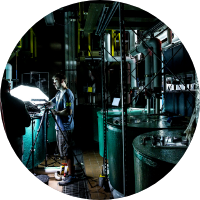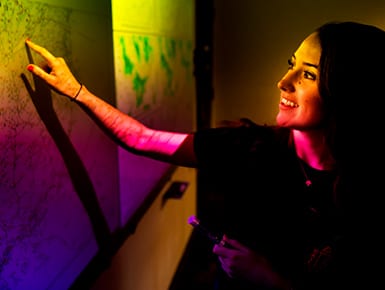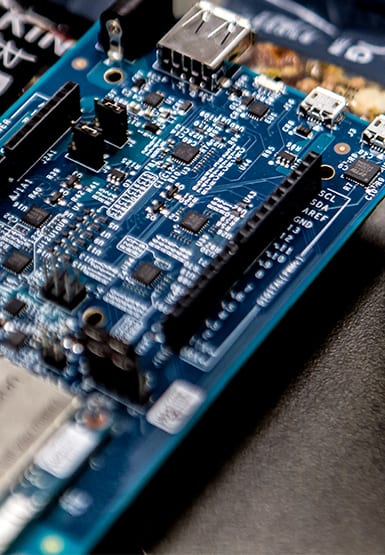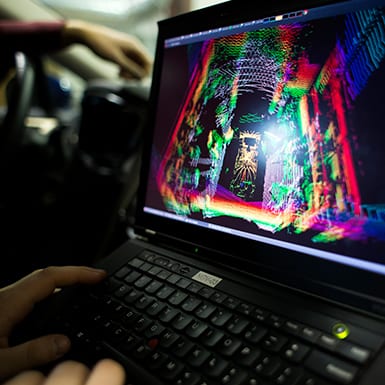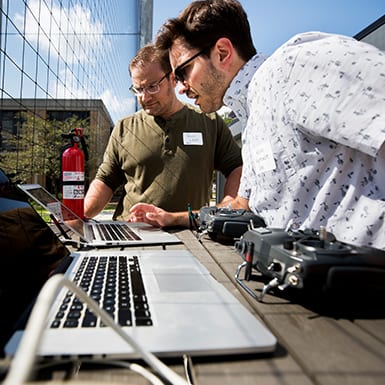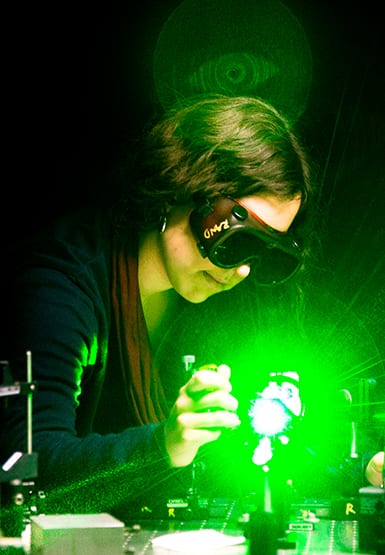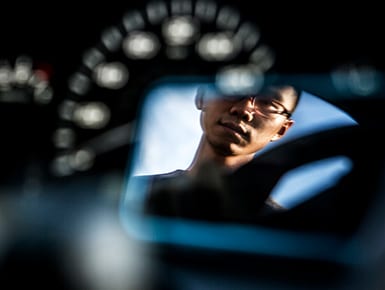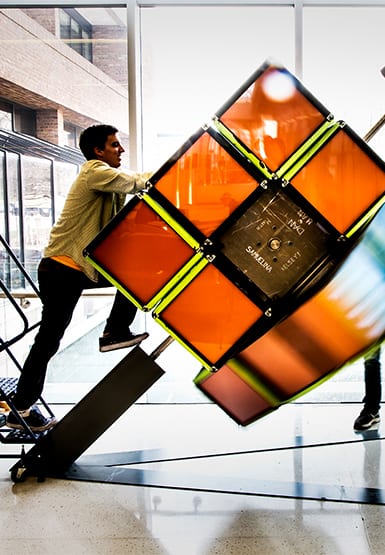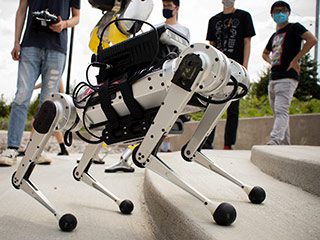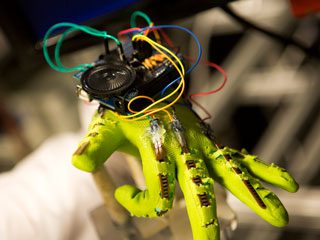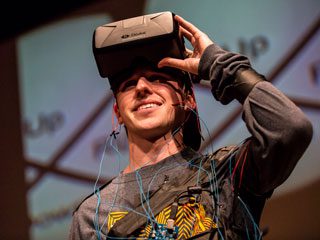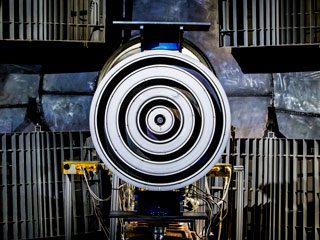E-commerce / Supply Chain Automation
Future disruptions in consumer and industrial supply chains could come from pandemics, climate emergencies, or shortages of necessary materials.
How can engineers optimize the interlinked systems necessary to predict demand, schedule shipments, automate manufacturing and deliveries, and create secure methods for data transfer and payment? Logistics and operations have been transformed by the digital age.
Explore all
OptoGPT for improving solar cells, smart windows, telescopes and more
Taking advantage of the transformer neural networks that power large language models, engineers can get recipes for materials with the optical properties they need.
The post OptoGPT for improving solar cells, smart windows, telescopes and more appeared first on Michigan Engineering News.
AI chips could get a sense of time
Timekeeping in the brain is done with neurons that relax at different rates after receiving a signal; now memristors—hardware analogues of neurons—can do that too.
The post AI chips could get a sense of time appeared first on Michigan Engineering News.
Microchip sets low-power record with extreme sleep mode
The Phoenix Processor uses 30,000 times less power in sleep mode and 10 times less in active mode than comparable chips now on the market.

GenAI diffusion models learn to generate new content more consistently than expected
Award-winning research led by Prof. Qing Qu discovered an intriguing phenomenon that diffusion models consistently produce nearly identical content starting from the same noise input, regardless of model architectures or training procedures.
Auto industry deadlines loom for impaired-driver detection tech, U-M offers a low-cost solution
Current technologies already in use could help prevent crashes and deaths linked to impaired driving.
The post Auto industry deadlines loom for impaired-driver detection tech, U-M offers a low-cost solution appeared first on Michigan Engineering News.
Improving traffic signal timing with a handful of connected vehicles
Communities could reduce costs and cut vehicle emissions—all in the name of shortening your trip.
The post Improving traffic signal timing with a handful of connected vehicles appeared first on Michigan Engineering News.
Widely used AI tool for early sepsis detection may be cribbing doctors’ suspicions
When using only data collected before patients with sepsis received treatments or medical tests, the model’s accuracy was no better than a coin toss.
The post Widely used AI tool for early sepsis detection may be cribbing doctors’ suspicions appeared first on Michigan Engineering News.
U-M team receives NIH grant for collaborative research to speed ARDS diagnosis
University of Michigan researchers examine if molecular compounds in exhaled breath could lead to improved diagnosis and tracking of acute respiratory distress syndrome (ARDS).
The post U-M team receives NIH grant for collaborative research to speed ARDS diagnosis appeared first on Michigan Engineering News.

Linking online and offline social networks to better predict real world impact
Prof. Lei Ying leads a new MURI that is focused on the interplay between online and offline networks and how they could impact disruptive behavior and events.
Clinicians could be fooled by biased AI, despite explanations
Regulators pinned their hopes on clinicians being able to spot flaws in explanations of an AI model’s logic, but a study suggests this isn’t a safe approach.
The post Clinicians could be fooled by biased AI, despite explanations appeared first on Michigan Engineering News.
Understanding attention in large language models
How do chatbots based on the transformer architecture decide what to pay attention to in a conversation? They’ve made their own machine learning algorithms to tell them.
The post Understanding attention in large language models appeared first on Michigan Engineering News.
Biases in large image-text AI model favor wealthier, Western perspectives
AI model that pairs text, images performs poorly on lower-income or non-Western images, potentially increasing inequality in digital technology representation.
The post Biases in large image-text AI model favor wealthier, Western perspectives appeared first on Michigan Engineering News.
Nextgen computing: Hard-to-move quasiparticles glide up pyramid edges
Computing with a combination of light and chargeless excitons could beat heat losses and more, but excitons need new modes of transport.
The post Nextgen computing: Hard-to-move quasiparticles glide up pyramid edges appeared first on Michigan Engineering News.
Simple neural networks outperform the state-of-the-art for controlling robotic prosthetics
And that tracks with the way our motor circuits work—we’re not that complicated.
The post Simple neural networks outperform the state-of-the-art for controlling robotic prosthetics appeared first on Michigan Engineering News.
Duraisamy to lead Michigan Institute for Computational Discovery and Engineering
“I am looking forward to working with the incredible talent we have at U-M to expand the frontiers of computational science, and in more firmly establishing the role of computing in solving the grand challenge problems facing humanity.”
The post Duraisamy to lead Michigan Institute for Computational Discovery and Engineering appeared first on Michigan Engineering News.

Yan Long awarded Predoctoral Fellowship to support research impacting secure communications
Long aims to ensure that the information received from sensing devices is both trustworthy and confidential.

Kamal Sarabandi honored with 2024 IEEE Electromagnetics Award
Sarabandi is recognized for his outstanding contributions to the theory and application of electromagnetics.

Kaleo Roberts awarded fellowship for remote sensing research that could aid crop management
Roberts creates methods to better estimate the radar backscatter from corn fields, which could improve the accuracy of global biomass and soil moisture maps derived from radar observations.

Wireless and battery-free sensors for sustainable smart cities
The sensors will provide real-time data for smart decision-making by allowing the natural environment and the built environment to communicate seamlessly.
Choosing exoskeleton settings like a Pandora radio station
Using a simple and convenient touchscreen interface, the algorithm learns the assistance preferences of the wearer.
The post Choosing exoskeleton settings like a Pandora radio station appeared first on Michigan Engineering News.

Prof. Aline Eid seeks to better perceive the world using a 5G Wireless Power Grid
Prof. Eid is looking to design the future of smart cities and infrastructures using ultra-low power wireless sensing and communications technologies.
Optimization could cut the carbon footprint of AI training by up to 75%
Deep learning models that power giants like TikTok and Amazon, as well as tools like ChatGPT, could save energy without new hardware or infrastructure.
The post Optimization could cut the carbon footprint of AI training by up to 75% appeared first on Michigan Engineering News.
Scalable method to manufacture thin film transistors achieves ultra-clean interface for high performance, low-voltage device operation
Led by Prof. Becky Peterson, the research focuses on a category of materials important for low power logic operations, high pixel density screens, touch screens, and haptic displays.
The post Scalable method to manufacture thin film transistors achieves ultra-clean interface for high performance, low-voltage device operation appeared first on Michigan Engineering News.

Six ECE faculty will help shape the future of semiconductors as part of the JUMP 2.0 program
Elaheh Ahmadi, David Blaauw, Michael Flynn, Hun-Seok Kim, Hessam Mahdavifar, and Zhengya Zhang bring their expertise and creativity to this nationwide undertaking in the area of semiconductors and information & communication technologies.
Open-source hardware: a growing movement to democratize IC design
Dr. Mehdi Saligane, a leader in the open-source chip design community, was among the first researchers to fabricate a successful chip as part of Google’s multi-project wafer program.
The post Open-source hardware: a growing movement to democratize IC design appeared first on Michigan Engineering News.
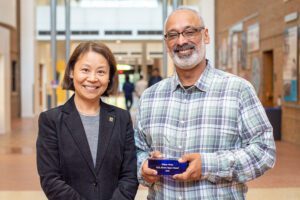
Vikram Verma talks the value of engineering and leadership to society as the 2022 ECE Alumni Impact Award winner
Verma credits his distinguished 30-year executive career with leading technology companies, including Savi Technology, Lockheed Martin and 8×8 Inc., to a combination of education, leadership, and luck.

Jesse Codling wins Best Presentation award for sensors that help protect these little piggies in their pens
Known affectionately as “The Sh*tty Project,” Codling, an ECE PhD student, monitors the vibrations in pig pens to track the health of the piglets and predict when they’re in danger.
Third Annual Data Mining Workshop Brings Together 100+ Researchers
100+ researchers from across the University of Michigan and from industry gathered on North Campus for the third U-M Workshop on Data Mining.

Michigan Researchers Win Best Paper Award at VLDB 2015
The paper proposes an interactive natural language interface for relational databases, which enables novice users to construct complex queries.

Censys enables fast searching of actionable internet data
The software enables users to ask questions about the hosts and networks that compose the Internet and get an immediate reply.

Barzan Mozafari receives NSF CAREER Award to improve predictability of database systems
Prof. Mozafari is passionate about building large-scale data-intensive systems that are more scalable, more robust, and more predictable.
Michael J. Cafarella selected for Sloan Research Fellowship
He has built software systems for information extraction, database integration, and feature engineering and applied these to problems in the social sciences.
Walter Lasecki and collaborators win Best Paper at W4A
The paper explores how automated speech recognition and crowd-sourced human correction and generation of transcripts can be traded off to improve accuracy and latency.
Google, U-M to build digital tools for Flint water crisis
CSE students and faculty will collaborate as a part of a larger team to help respond to the crisis.
Shadows in the Dark Web
Secrets lurk in the dark web, the 95 percent of the internet that most of us can’t see. One U-M professor is bringing some of those secrets to light, making the digital and the real world a little safer.
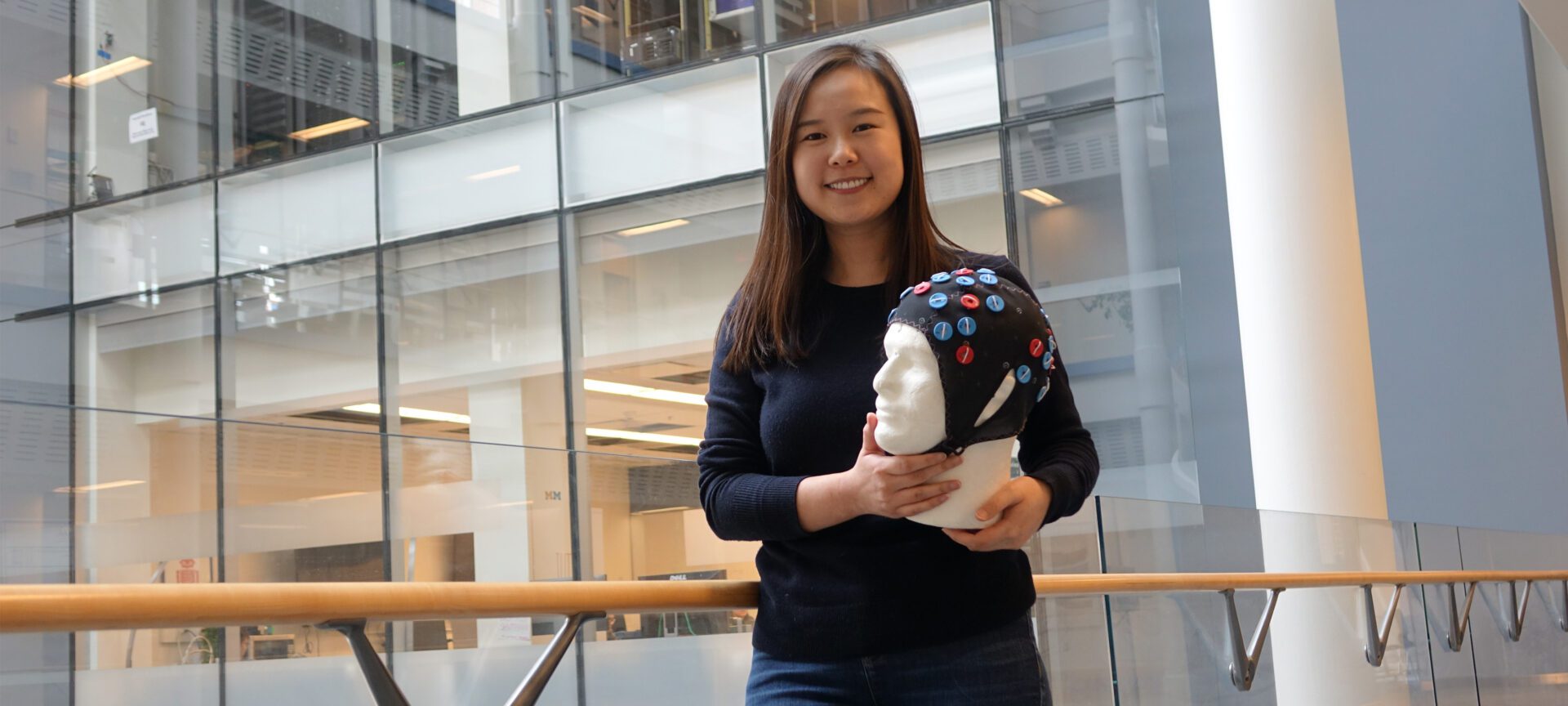
Researchers to use brain scans to understand gender bias in software development
The team will use fMRI to identify some of the underlying processes that occur when a code reviewer weighs in on a piece of software and its author.

Open-source software helps youth with disabilities develop scheduling independence
The system can add more flexibility to task management apps to help learning users make informed decisions about their time.
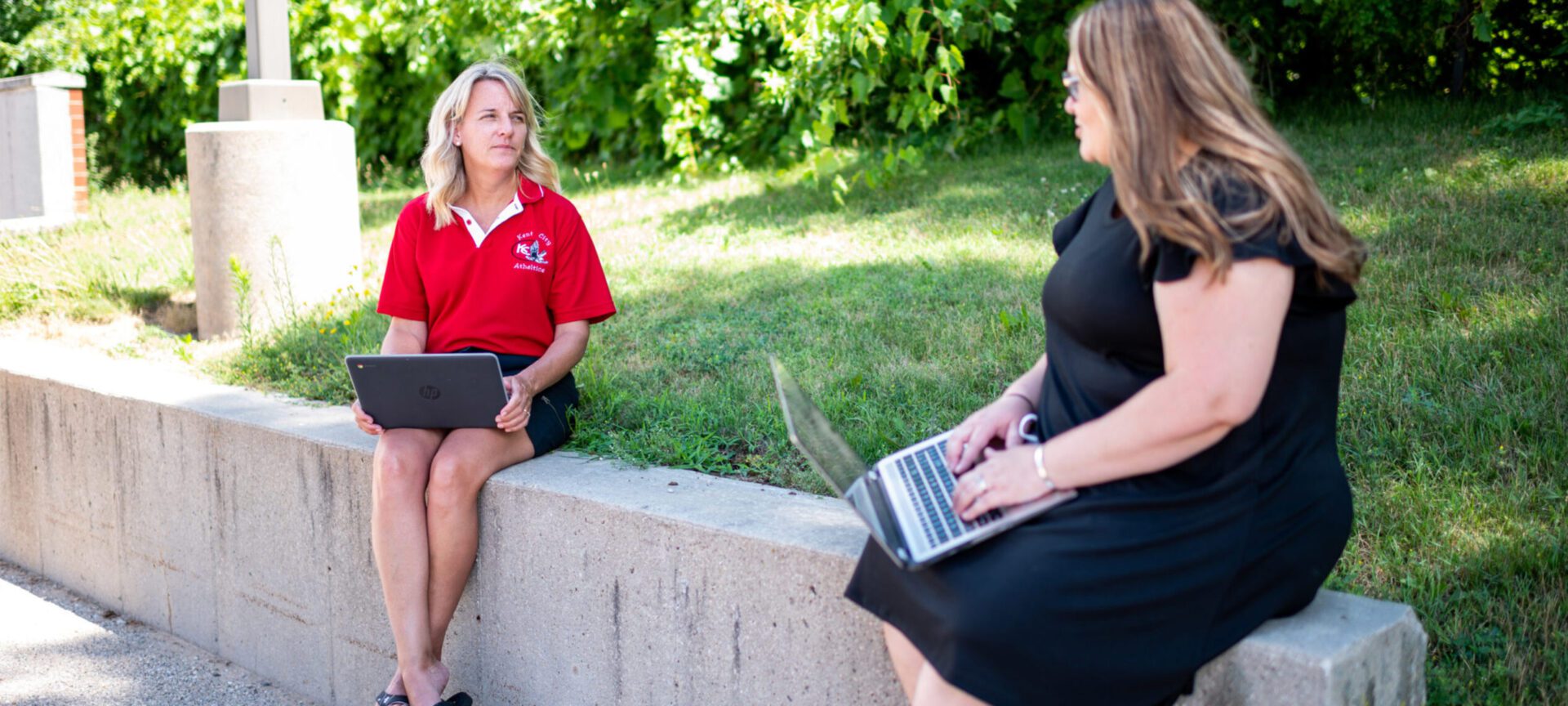
Roadmap for teachers: U-M free online learning platform paves the way
K-5 teachers and students throughout Michigan are building thriving learning communities online by using free deeply-digital, standards-aligned curricula and platform developed by the U-M Center for Digital Curricula.

Computer scientists employ AI to help address COVID-19 challenges
Five multidisciplinary research teams are working on projects to assist with the coronavirus outbreak and to help find solutions to pressing problems.

Leaders in ultra low power cicuits and systems presenting at VLSI Circuits Symposium
All of the research being presented focuses on getting the absolute best performance from the tiniest circuits, sensors, and electronic devices.
Seed-sized U-M computers pumped into oil wells featured at the Houston Museum of Natural Science
Millimeter-sized computers log the temperature and pressure from deep within oil wells.

Two ‘U’ researchers receive Distinguished University Innovator Award
The Michigan Daily profiles Professors David Blaauw and Dennis Sylvester, who are this year’s recipients of the 2019 Distinguished University Innovator Award.

David Blaauw named Kensall D. Wise Collegiate Professor of Electrical Engineering and Computer Science
Blaauw’s innovations in low-power computing led to development of the Michigan Micro Mote, the world’s smallest computer.
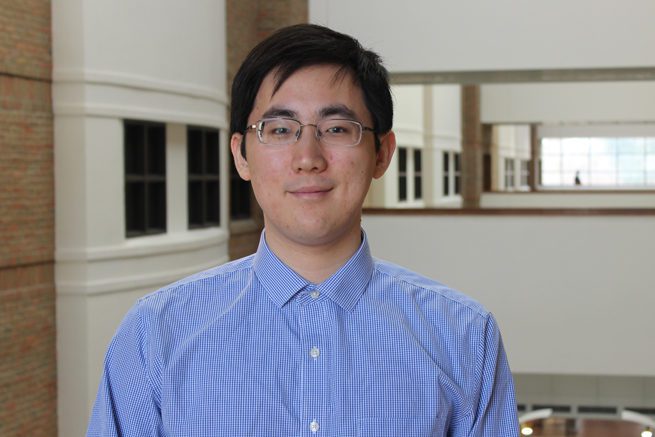
Xiang Yin earns Pre-Doc Fellowship for research in cyber-physical systems
Xiang’s research focuses on developing new methods to synthesize different control and sensing strategies in a discrete-event system.
Alfred O. Hero, III named John H. Holland Distinguished University Professor of EECS
Hero is honored for his extraordinary accomplishments that have brought distinction to himself, his students, and to the entire University.
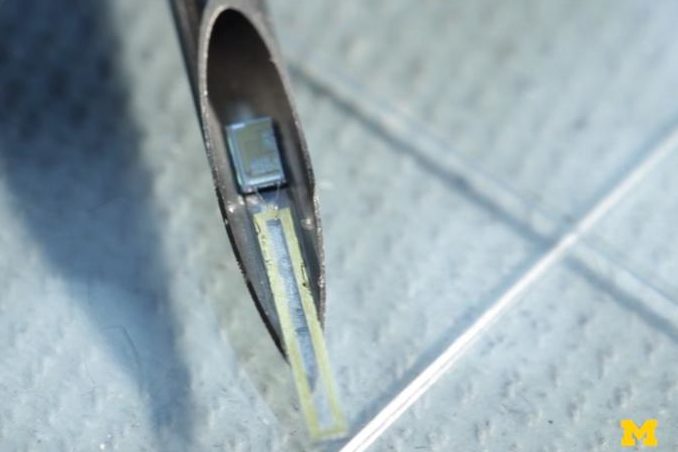
Injectable computers can broadcast from inside the body
This platform has enabled a variety of sensors that can fit inside the human body, made possible by several breakthroughs in ultra-low power computing.
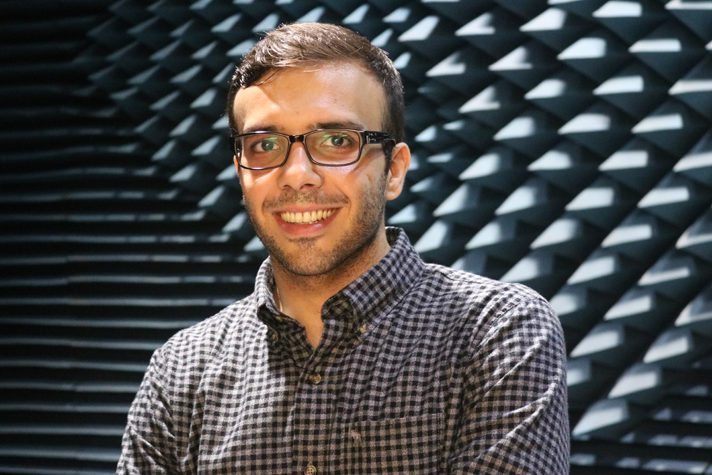
A new, low-cost way to monitor snow and ice thickness to evaluate environmental change
Mohammad has developed a new way to remotely measure the thickness of ice and snow with a technology he calls wideband autocorrelation radiometry (WiBAR).

Kamal Sarabandi elected Fellow of the American Association for the Advancement of Science
The AAAS seeks to advance science, engineering, and innovation throughout the world for the benefit of all people.
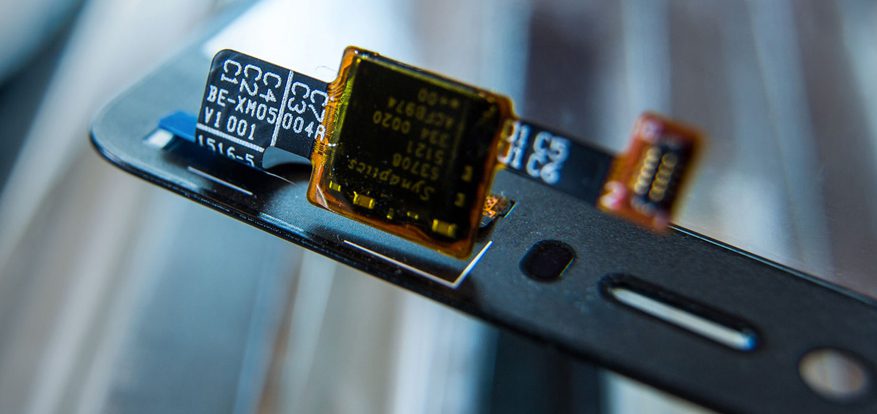
Rick Bergman, CEO of Synaptics – giving tech a sense of touch
ECE alum Rick Bergman, CEO of Synaptics, is working to make tomorrow’s technology user friendly, safe, and reliable. The company hopes to lead what they call “the human interface revolution.”

IGARSS Interactive Symposium Paper Award for modeling the world’s forests
The paper outlines a better way to quantify forest structure, which has been successful in two tree species.
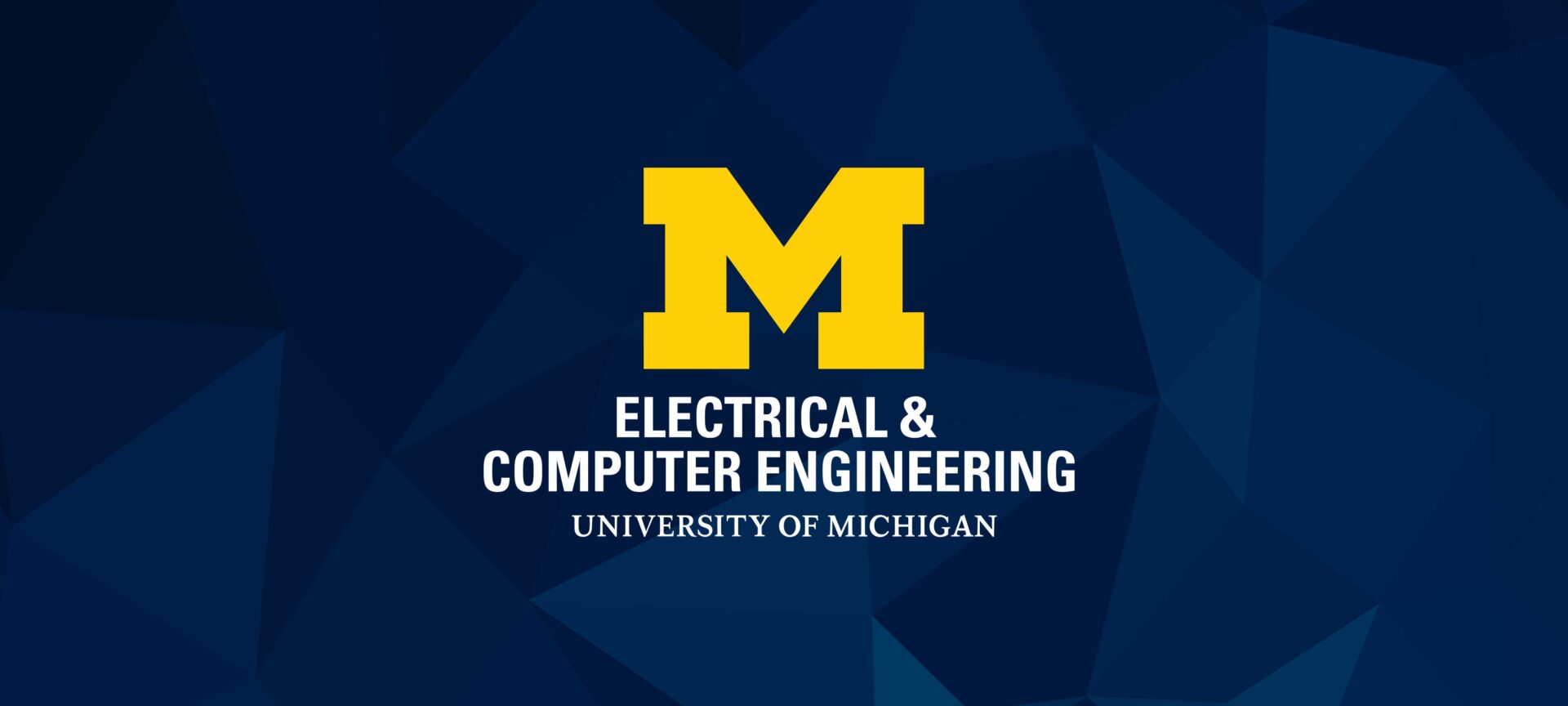
Student’s digital art makes the Cube even more interactive
Keenan Rebara hopes to add to the fun of spinning the Cube using his a bit of physics and sensors.
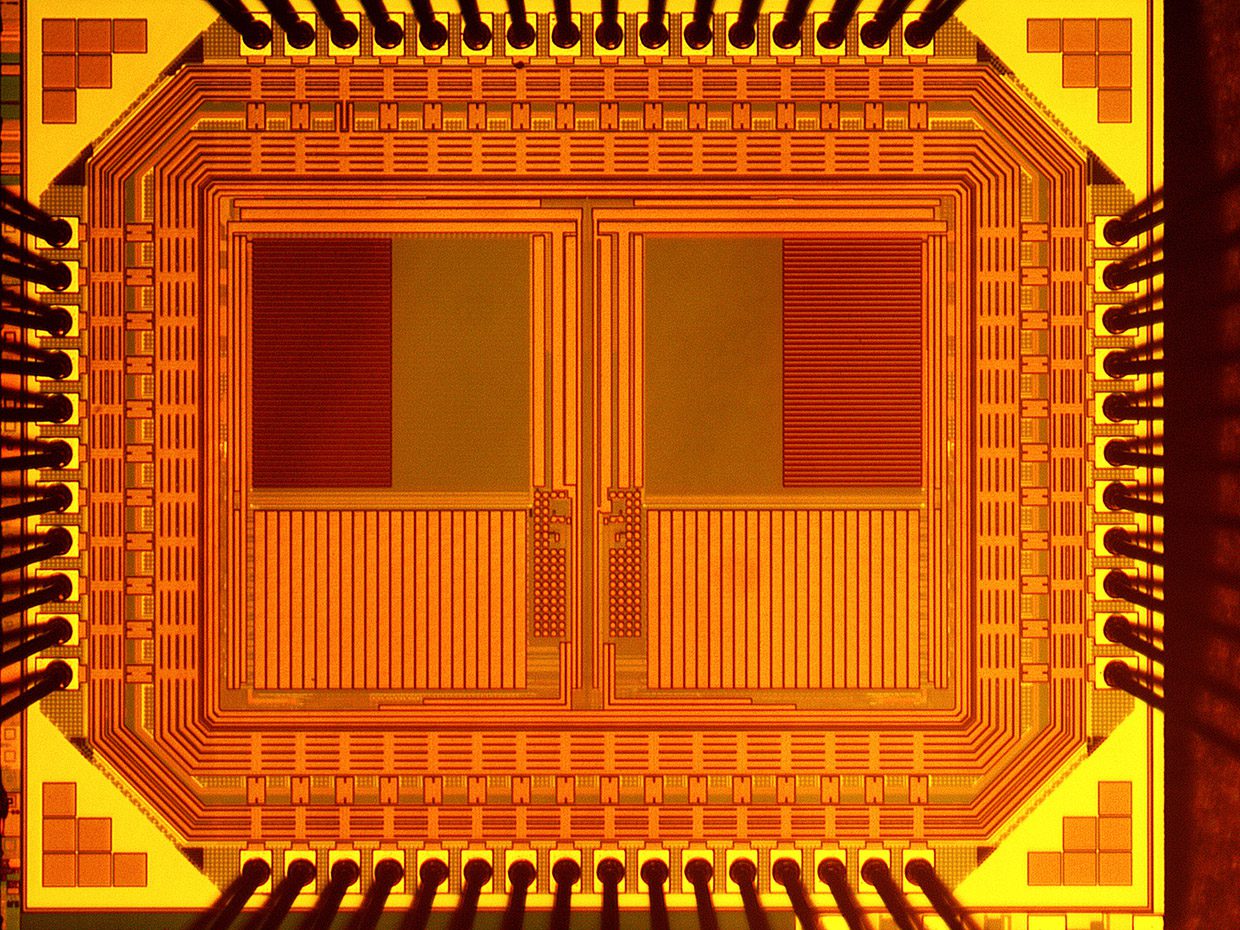
Solar cells enable self-powered camera
A solar cell combined with a camera sensor collects photons to provide electricity.
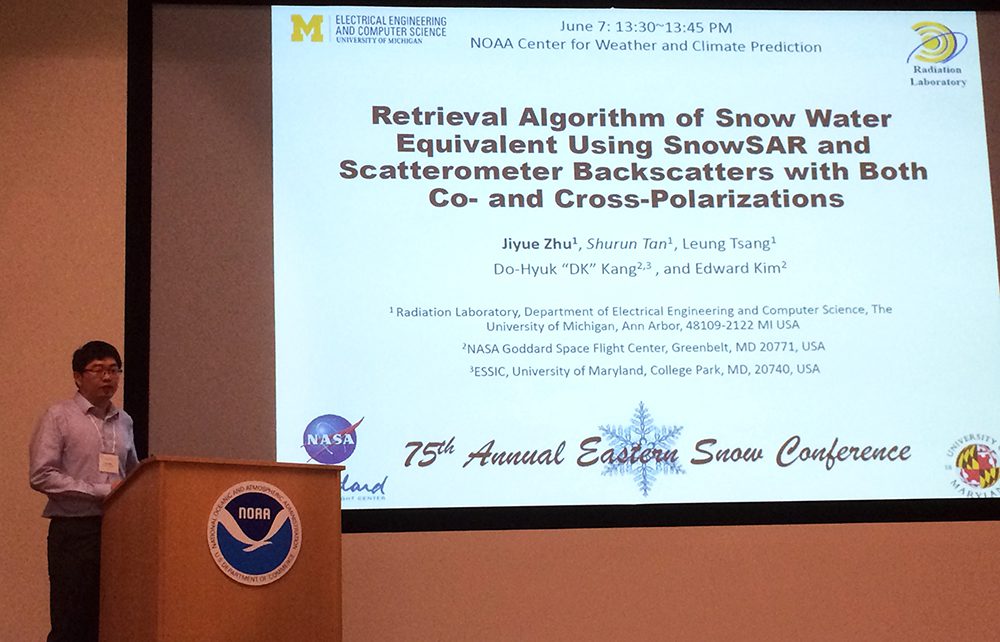
Jiyue Zhu awarded Wiesnet Medal for improved snow algorithms
An award-winning method will help us better understand how much snow is on the ground.

Laura Balzano receives ARO Young Investigator Award to improve high-dimensional big data problems
Applications include managing large networked systems, such as sensor networks, power grids, or computer networks.

Huanting Huang improves accuracy of remote sensing
Huang won the Best Student Paper Award at the IEEE International Conference on Computational Electromagnetics for her work developing better electromagnetic models that calculate microwave interactions with tree and vegetation cover.
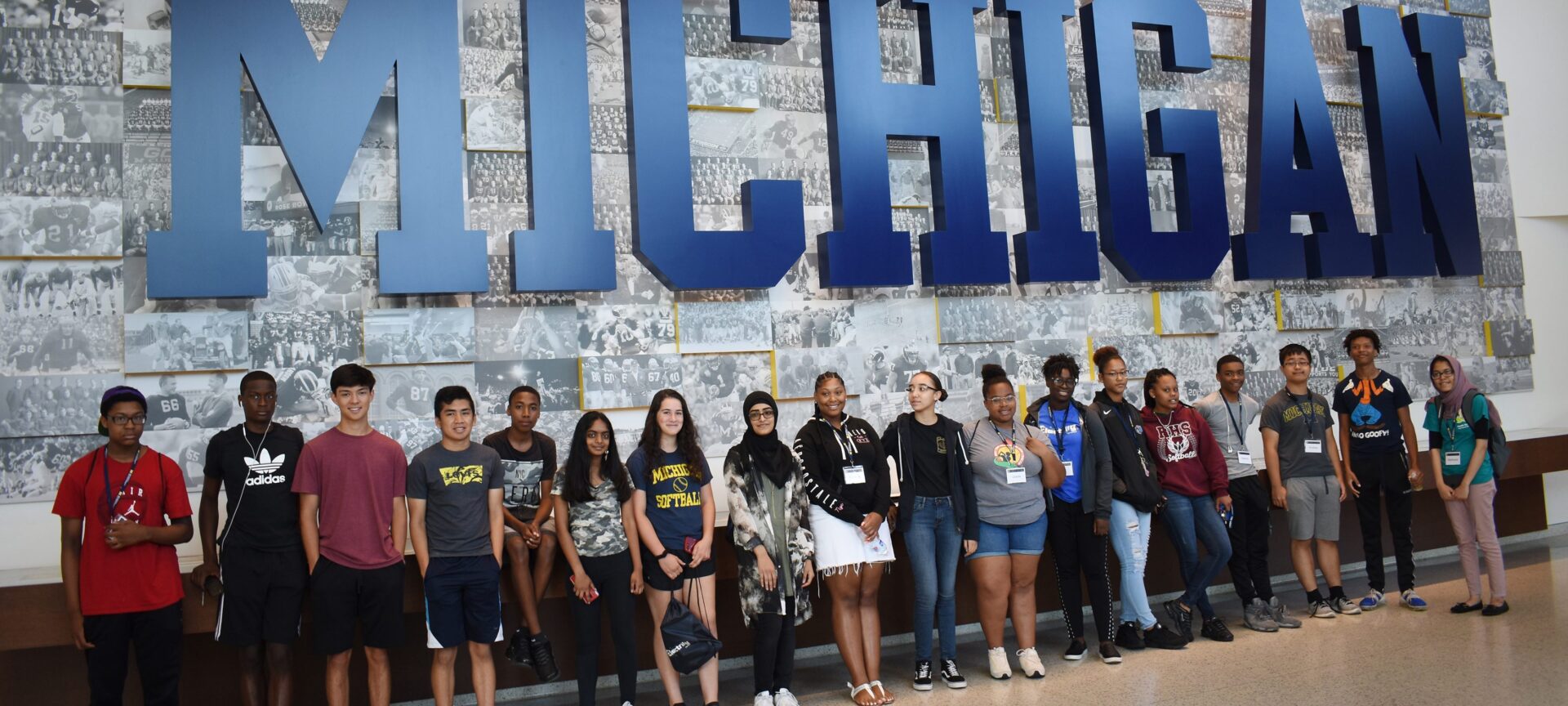
Electrify goes to Detroit
Electrify hosted its first Detroit Tech Camp at the Michigan Engineering Zone this summer to give Detroit-area students greater access to engage with science, technology, engineering, and mathematics.

Zhanni Wu awarded Rackham Predoctoral Fellowship
Wu is working on advanced metasurfaces, which could help next-generation wireless communication, commercial and military radar systems, imaging, and antenna systems.
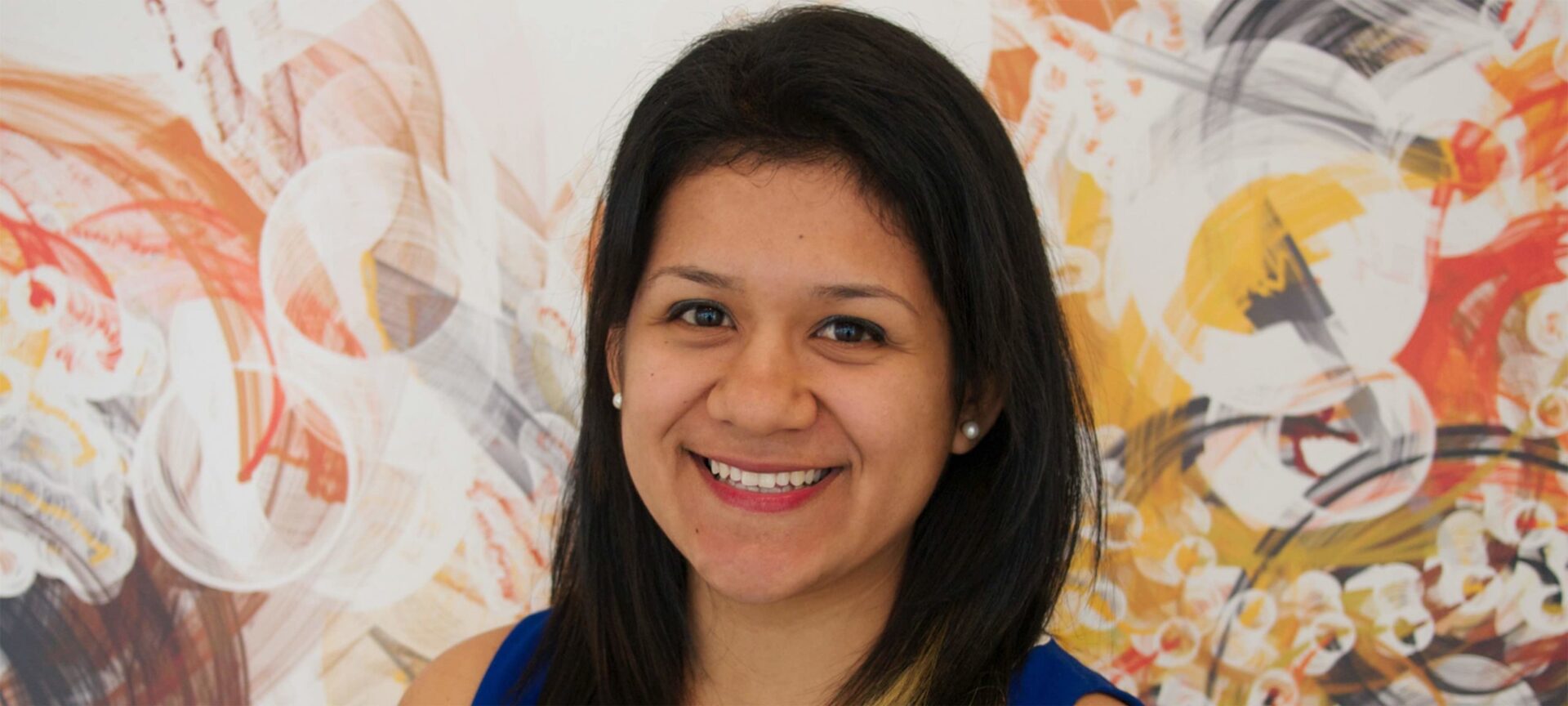
Ester Bentley receives NDSEG Fellowship to help the world navigate without GPS
PhD student Ester Bentley designs smaller, better 3D mechanical resonators for use in high-performance gyroscopes to help unmanned systems navigate when GPS signal is jammed or lost.
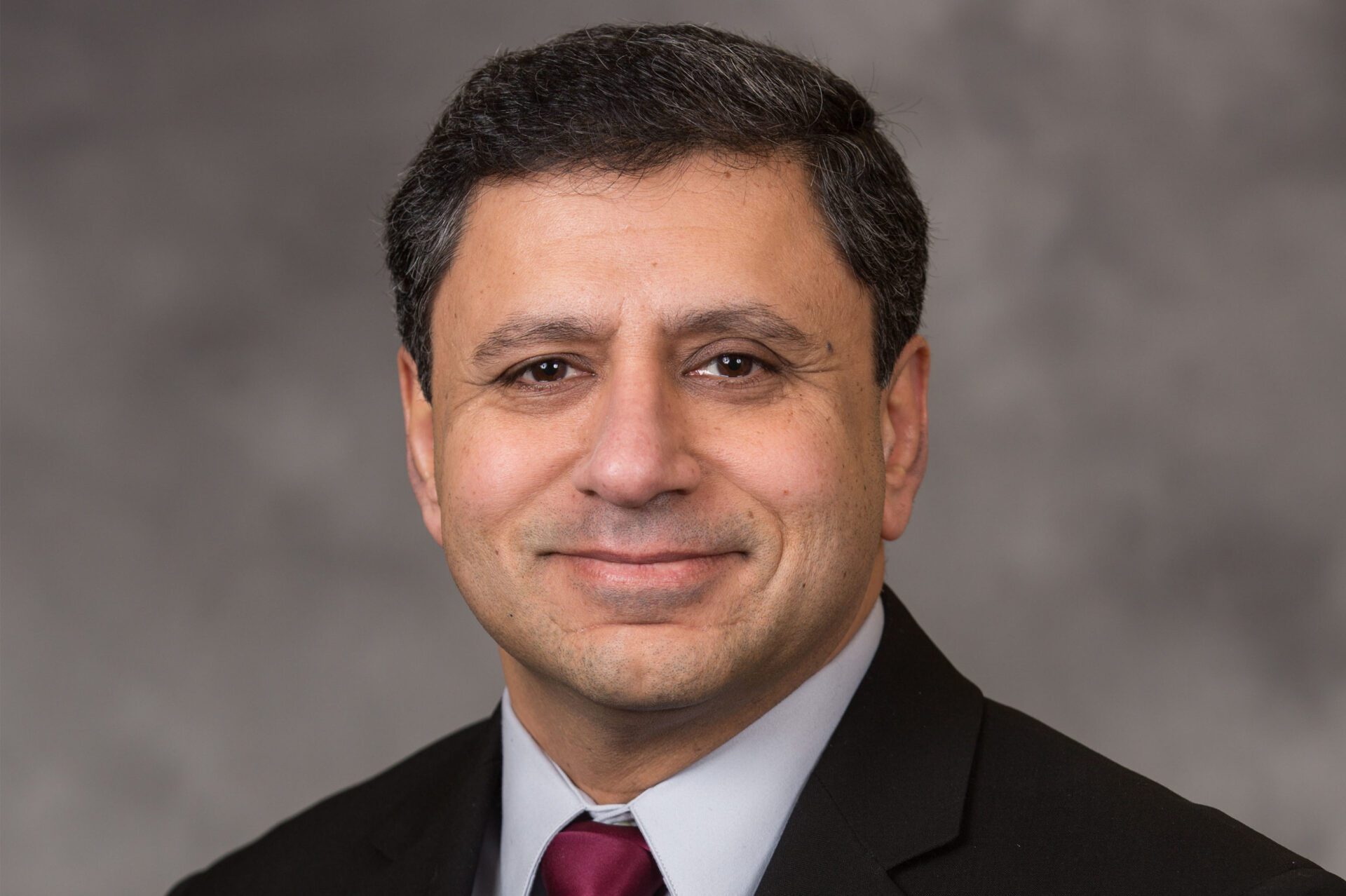
Autonomous well monitoring solution recognized with a Best Innovators award
The WAND wireless sensor developed in a collaboration between Total, an oil & gas company, and the University of Michigan is revolutionizing well monitoring

Fawwaz Ulaby retires after nearly four decades of championing students and excelling at research and leadership
Students say Ulaby, a member of the National Academy of Engineering and recipient of the Edison Medal, is one of the best professors – and people – they’ve ever known.

Three ECE students awarded Rackham fellowships
Cheng-Hsun Lu,
Shih-Chi Liao, and Jiale Zhang have been awarded the Rackham International Students Fellowship/Chia-Lun Lo Fellowship.

Millimeter-scale, energy-harvesting sensor system developed
The system could enable new biomedical implants as well as home-, building- and bridge-monitoring devices.
Paving the way for ubiquitous computing
Until now, ubiquitous computing has been hampered by the size of necessary batteries—but Ambiq Micro is changing that, with their energy-efficient micro-controllers.
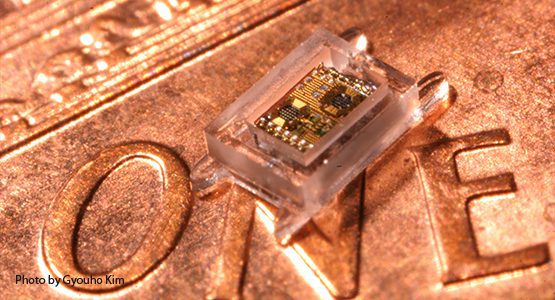
Toward computers that fit on a pen tip: New technologies usher in the millimeter-scale computing era
U-M faculty have developed what is believed to be the first complete millimeter-scale computing system, with applications in radio communication and wireless sensing.

Making smart dust a reality
This research is expected to have a fundamental and long term impact on a diverse set of applications ranging from energy conservation to health care.

Making the Internet of Things happen
Wentzloff aims to remove the necessity of a power outlet or even a battery to power miniature sensors.
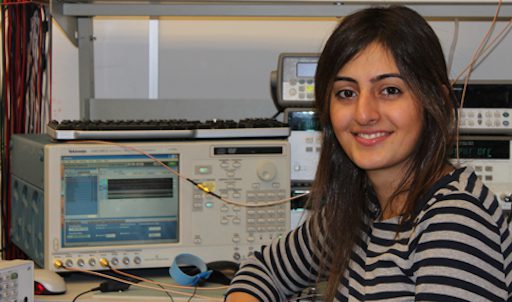
Avish Kosari receives Rackham International Student Fellowship
Avish is currently conducting research on ultra-low power radio technology and designing a low-power RF power amplifier.
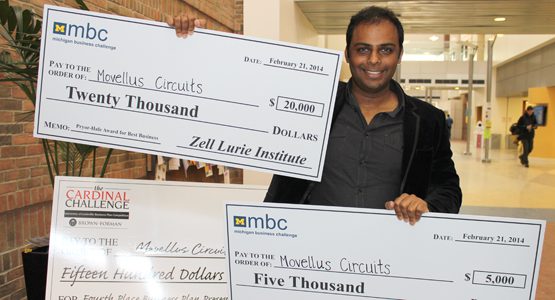
Muhammad Faisal wins business competition with technology critical to the Internet of Things
Movellus Circuits’ product is a patent-pending clock generator technology that is smaller, cheaper, and faster than existing solutions.
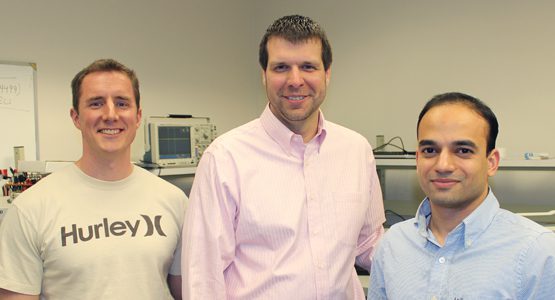
PsiKick startup attracts financing for its Internet of Things technology
The chips’ extreme energy efficiency enables them to be powered without a battery from harvested energy sources like vibration, thermal gradients, and more.
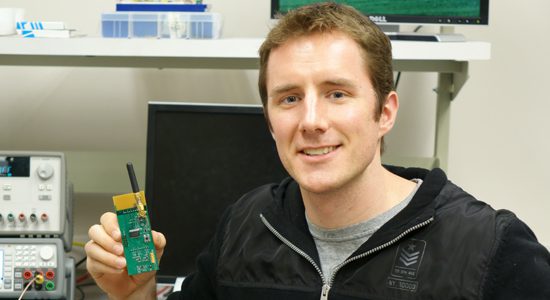
Student Spotlight: Nathan Roberts – Enabling the Internet of Things
Instead of a battery, the chip Nathan is engineering uses two solar cells that look like they belong on a calculator.
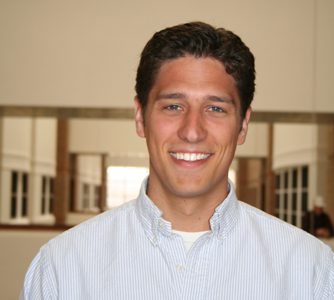
Scott Hanson receives 2014 Arbor Networks Ph.D. Research Impact Award
Dr. Hanson is the co-founder of a startup semiconductor company that plans to lead the low-power revolution in electronics by powering the Internet of Things.
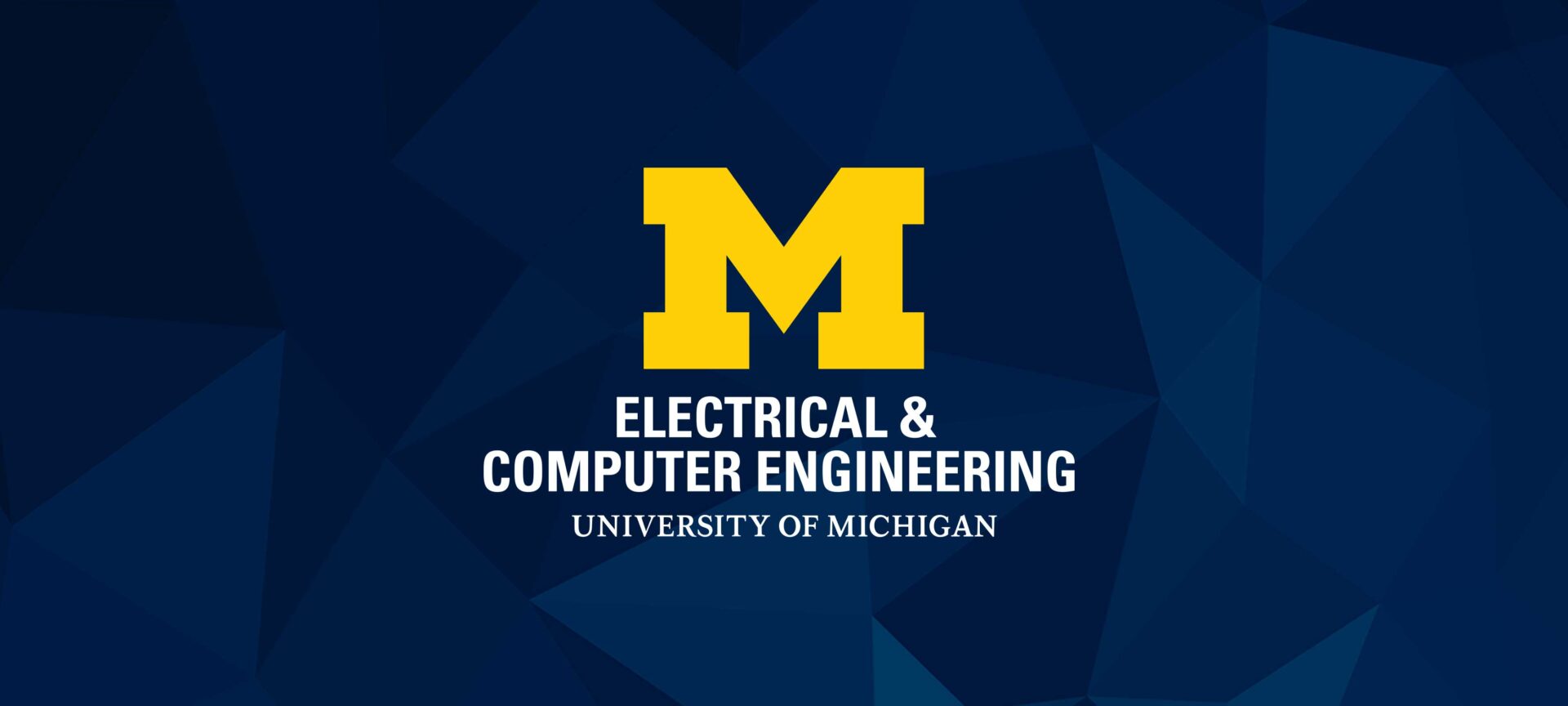
Nick Yang: Investing in the age of robotics
At the age of 24, Yang sold his company ChinaRen for $35 million.

Michigan Micro Mote (M3) makes history as the world’s smallest computer
A brief history of what led to the technical feat known as the Michigan Micro Mote, a tiny speck of a computer that does it all.
Silicon valley entrepreneurs help bring WIMS2 technology to the world
Shahin and Sassan discussed everything from the acquisition trends of small vs. large companies to the importance of building a team with a range of expertise.
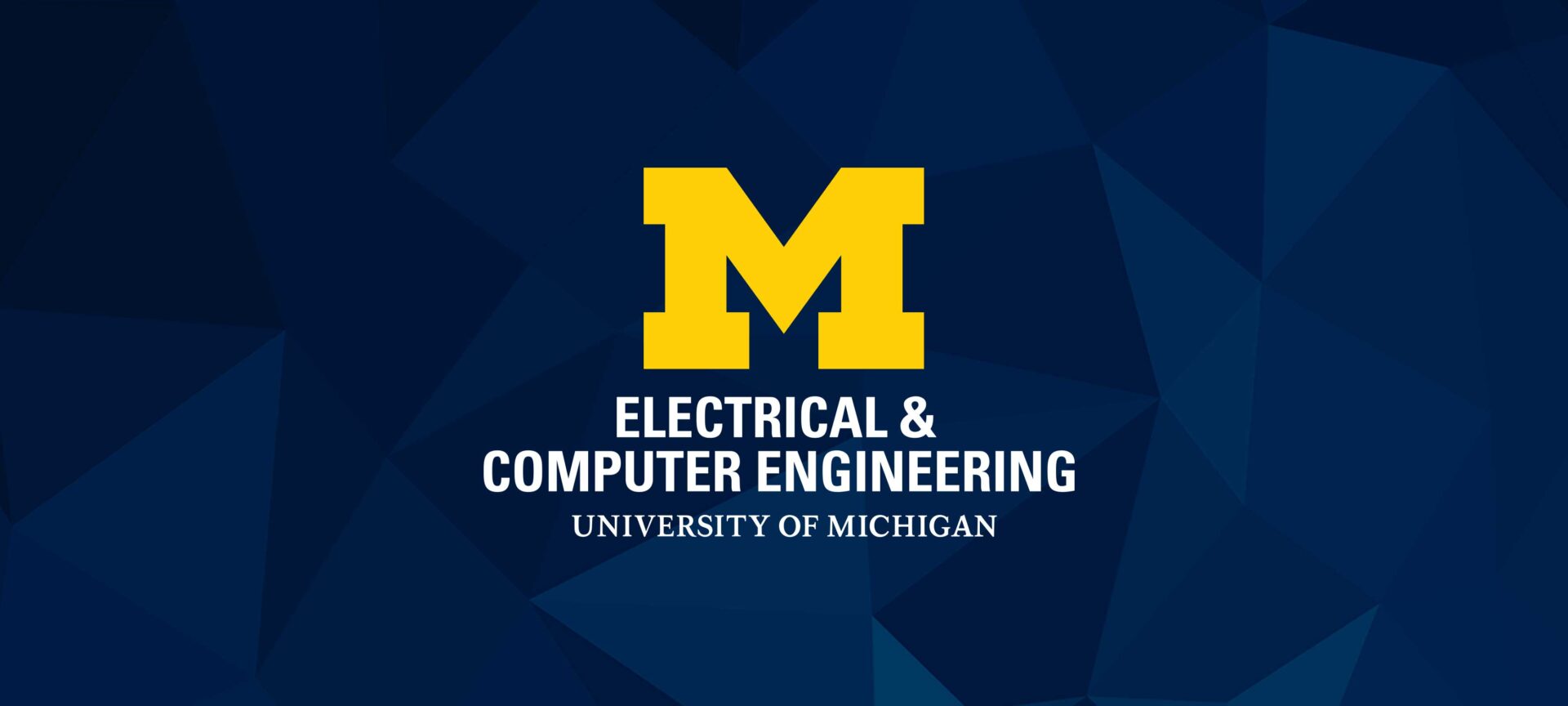
3 ECE companies make the Silicon 60 List – again!
Ambiq Micro, Crossbar, Inc., and PsiKick, are leading the way in ultra-low power chip design, pioneering computer memory, and ultra-low power wireless sensor platforms.
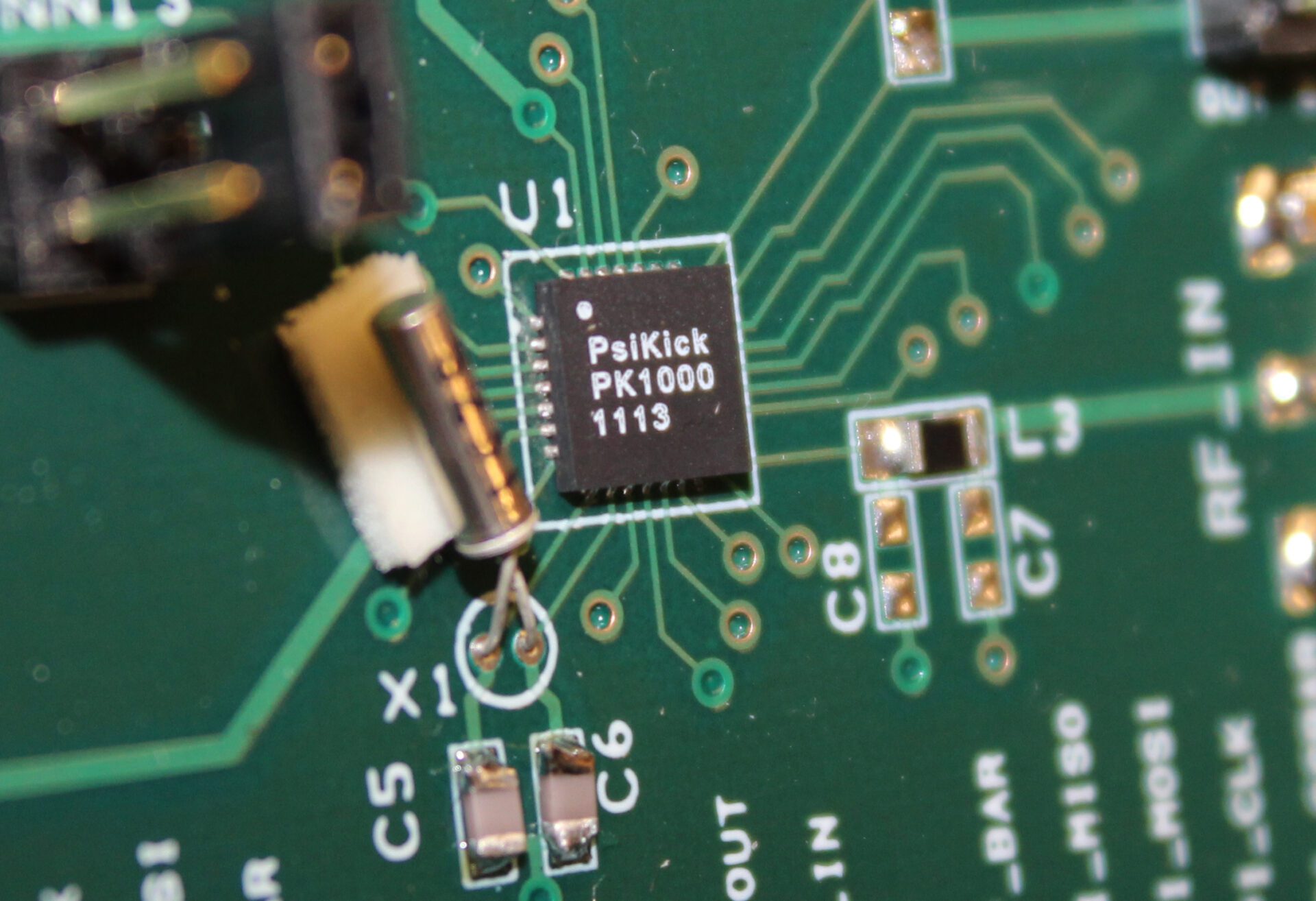
Googling the physical world
IoT applications are the next wave of computing and the next driving force of the semiconductor industry. The startup PsiKick [now Everactive] is helping shape this future.
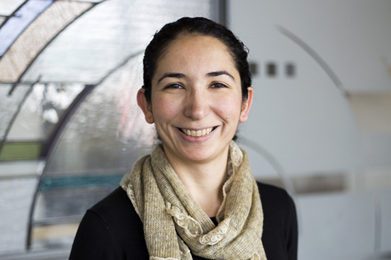
Necmiye Ozay receives CAREER award for research in cyber-physical systems
Cyber-physical systems are smart, networked systems with embedded sensors, processors, and actuators that are designed to interact with the physical world.

MBus is the missing interconnect for millimeter-scale systems
The M3 is a fully autonomous computing system that acts as a smart sensing system.
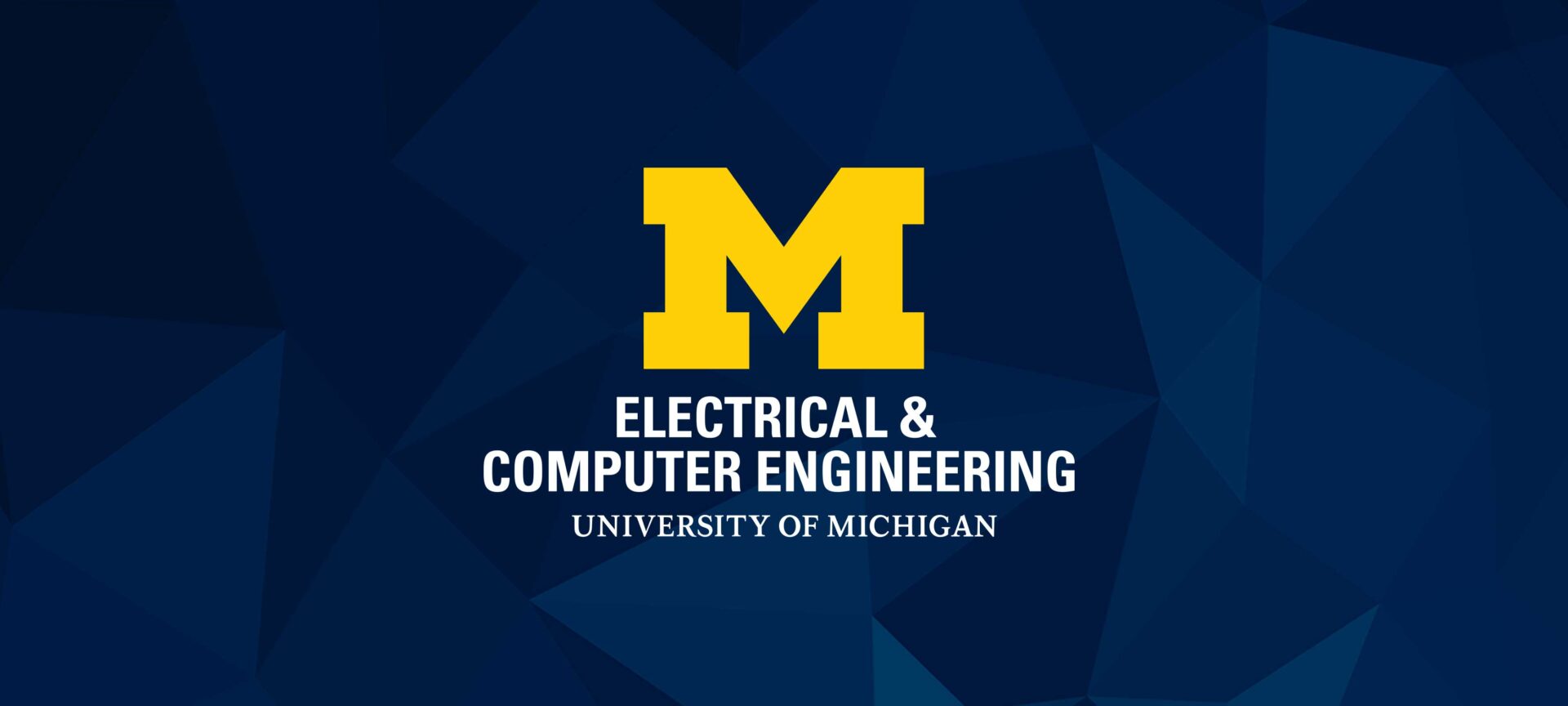
Avish Kosari selected as Barbour Scholar for Research in low-power devices for the Internet of Things
Avish conducts research on ultra-low power and battery-less integrated circuits.

Joshua Adkins Selected for NSF Graduate Research Fellowship
Adkins plans to continue his graduate studies in electrical engineering and computer science at the University of California Berkeley.
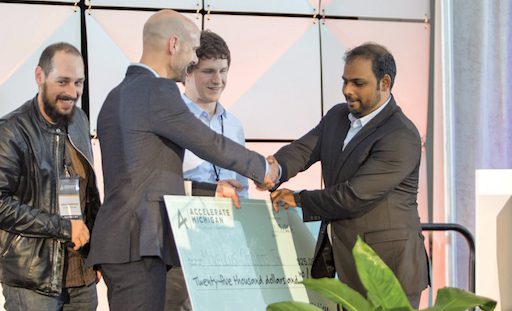
Alum startup wins $25,000 at Accelerate Michigan Competition
Movellus Circuits won $25,000 in the University Research Highlight and People’s Choice categories
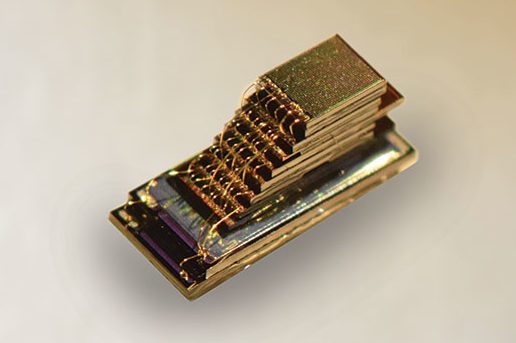
Michigan’s millimeter-scale computers featured at ISSCC2017, and in IEEE Spectrum
Professors Blaauw and Sylvester showcase capabilities of tiny computing
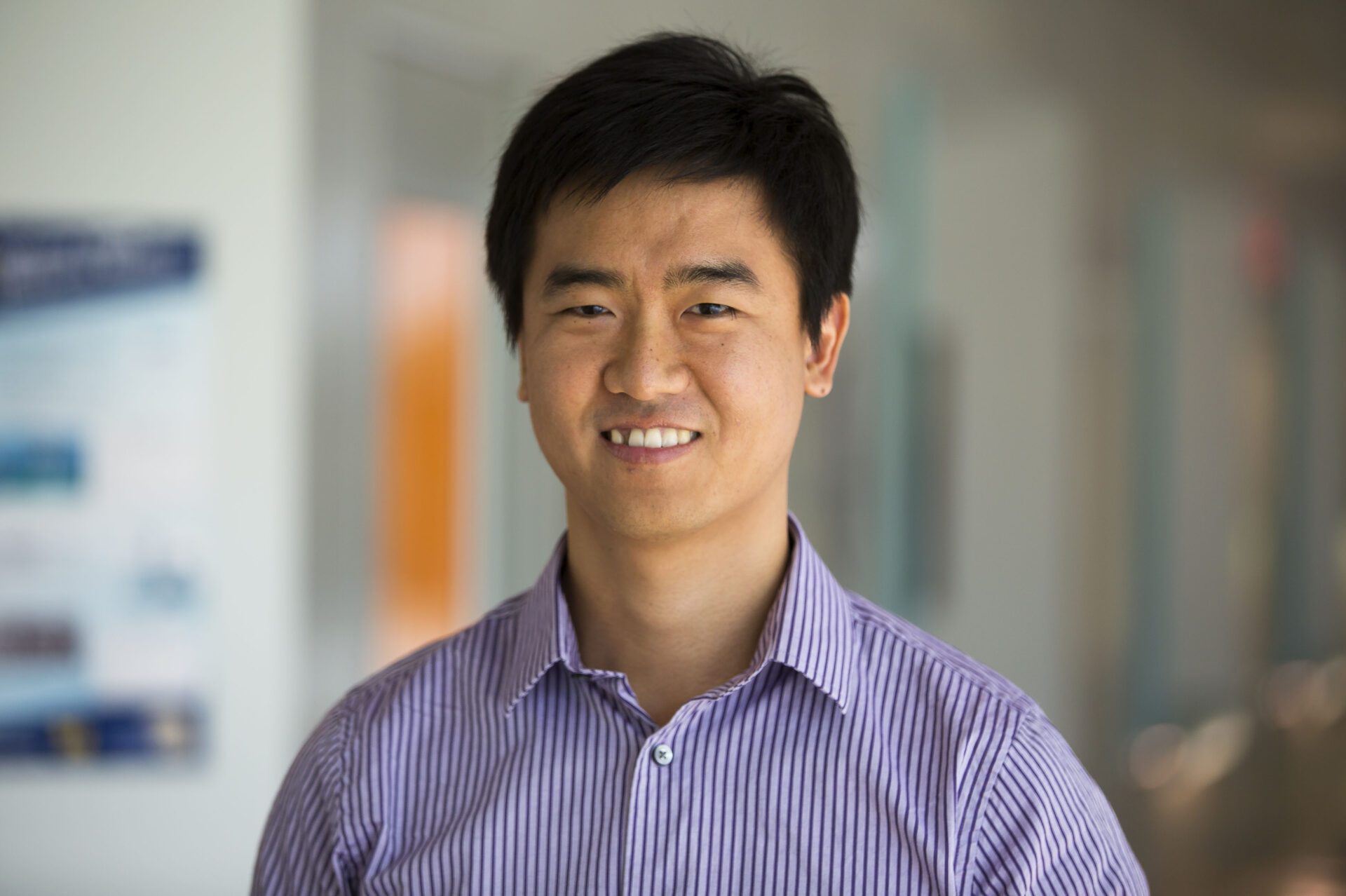
Hun-Seok Kim receives DARPA Young Faculty Award to advance research in IoT networks
Kim’s research is expected to impact the future design and wireless operation of the next generation of Internet of Things (IoT) devices

The new law that will guide the future of information processing
The law of small numbers could impact the next generation of tools that deal with data.

Conducting an orchestra of sensor nodes
Keeping time in the Internet of Things with frequency scaling

Communicating with the world’s smallest computers
Researchers built the first millimeter-scale transmitter and antenna that can talk Bluetooth Low Energy with ease.

A high-efficiency GaAs solar cell to power the Internet of Tiny Things
The Michigan Micro Mote gets a new gallium arsenide solar cell for added power and adaptability.
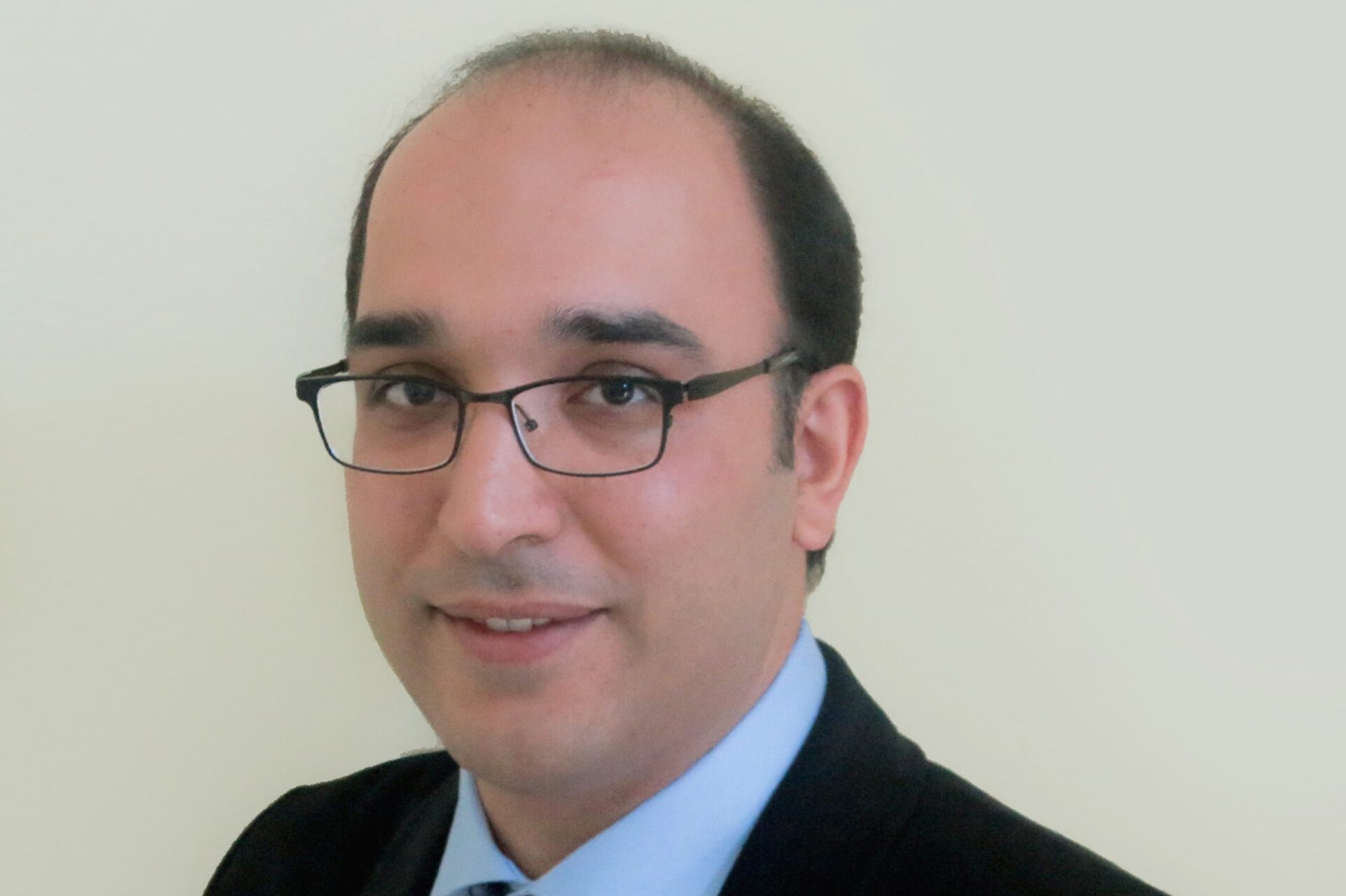
Channel Coding for Next Generation 5G and Beyond
With the help of two NSF awards totaling $1.7m, Prof. Hessam Mahdavifar is tackling new problems to improve the reliability of communication systems for 5G and beyond.

“Ultra low-power receivers for IoT applications” wins Outstanding Invited Paper
Prof. David Wentzloff’s paper examining the trends and techniques to achieve ultra-low power receivers was honored by the IEEE Custom Integrated Circuits Conference

Thomas Ryan awarded SMART Scholarship to support his studies on defense technologies
Ryan is an electrical engineering undergrad interested in military systems and devices.

Designing large neural codes for the next generation of communication systems
PhD candidate Mohammad Vahid Jamali won a Best Paper award at IEEE ICC for his work on Product AutoEncoders, which could help shape future generations of wireless networks, IoT, and autonomous systems.
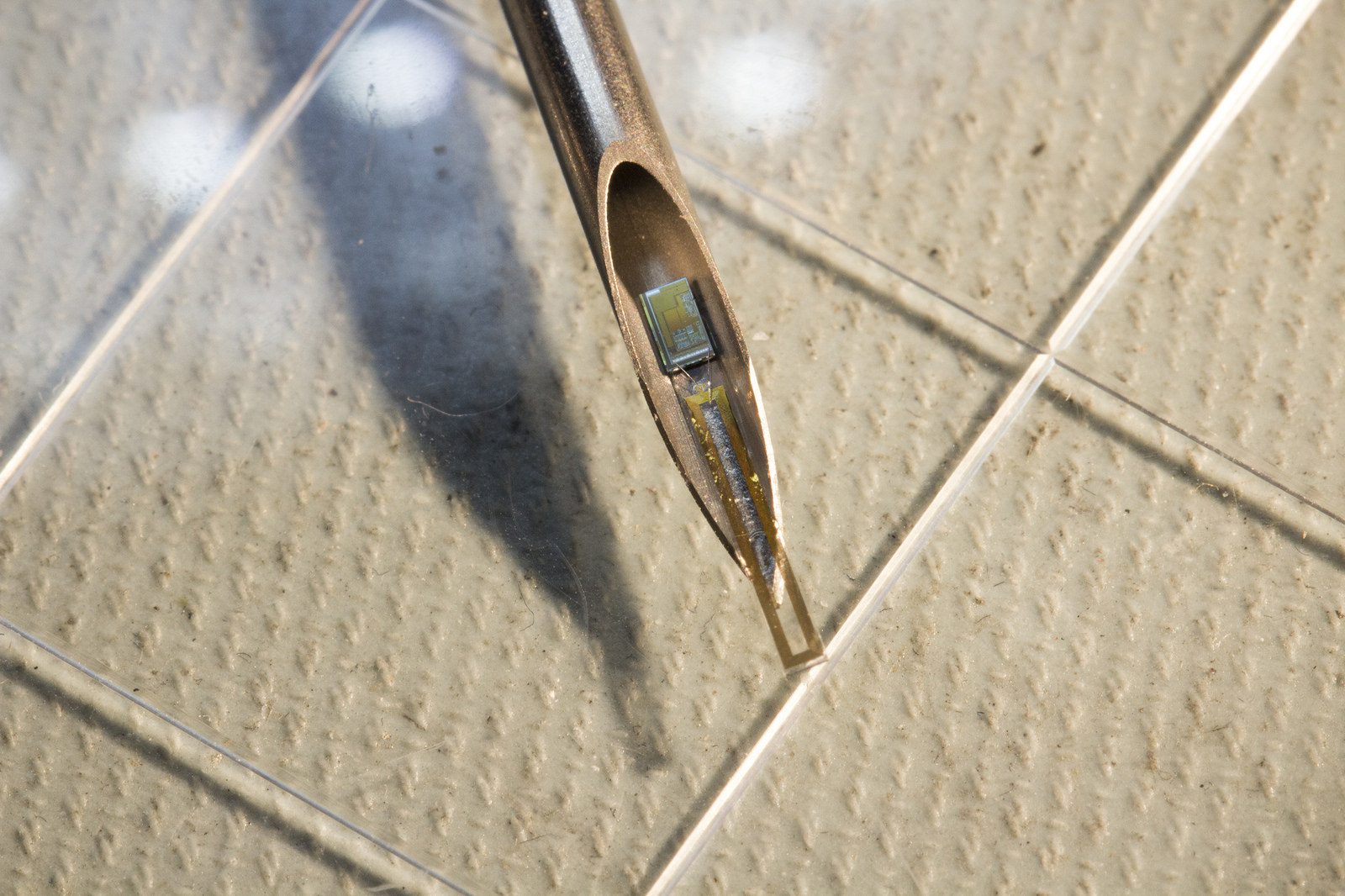
Injectable computers
With a radio specifically designed to communicate through tissue, researchers from the Electrical and Computer Engineering are adding another level to a computer platform small enough to fit inside a medical grade syringe.
The Michigan Probe: Changing the Course of Brain Research
Some believed early Michigan brain researchers were engaging in “science fiction” – until development of an advanced tool for forging breakthroughs proved them wrong.
The post The Michigan Probe: Changing the Course of Brain Research appeared first on Michigan Engineering News.

Sensors from head to toe – Todd Coleman makes measuring health simpler
Prof. Todd Coleman’s group is tackling the challenging problem of getting high-fidelity monitoring to work affordably at home.
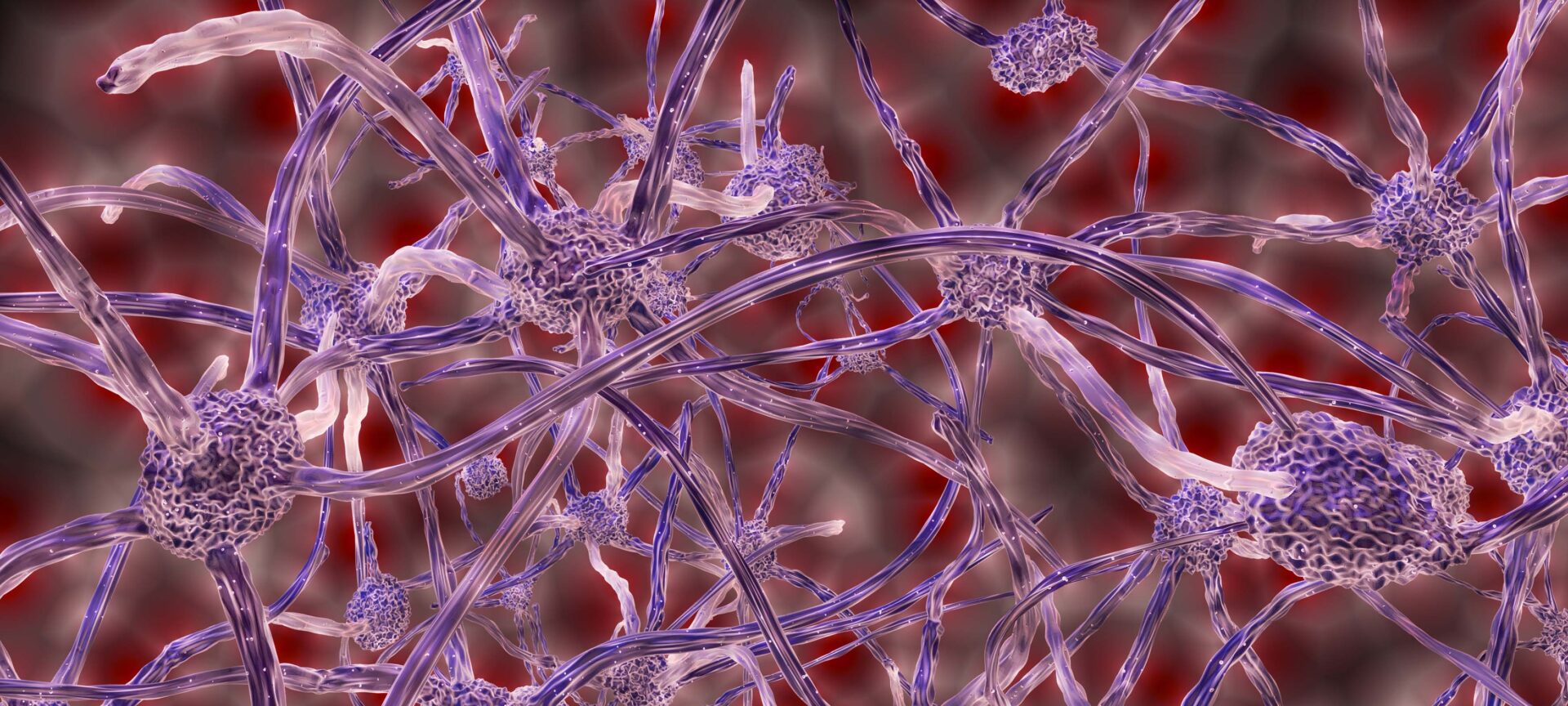
New funding for high-fidelity nerve mapping research
SPARC awarded $1M to a U-M project developing better nerve mapping.

Student Arun Nagpal develops new ENG 100 section to spotlight space science
UM-SEDS co-President Arun Nagpal develops ENG 100 section to expose freshman to space science and atmospheric sensing.
Professor Leung Tsang Receives 2018 Van de Hulst Award
Prof. Tsang is a world-renowned expert in the field of theoretical and computational electromagnetics, and in particular microwave remote sensing of the earth.
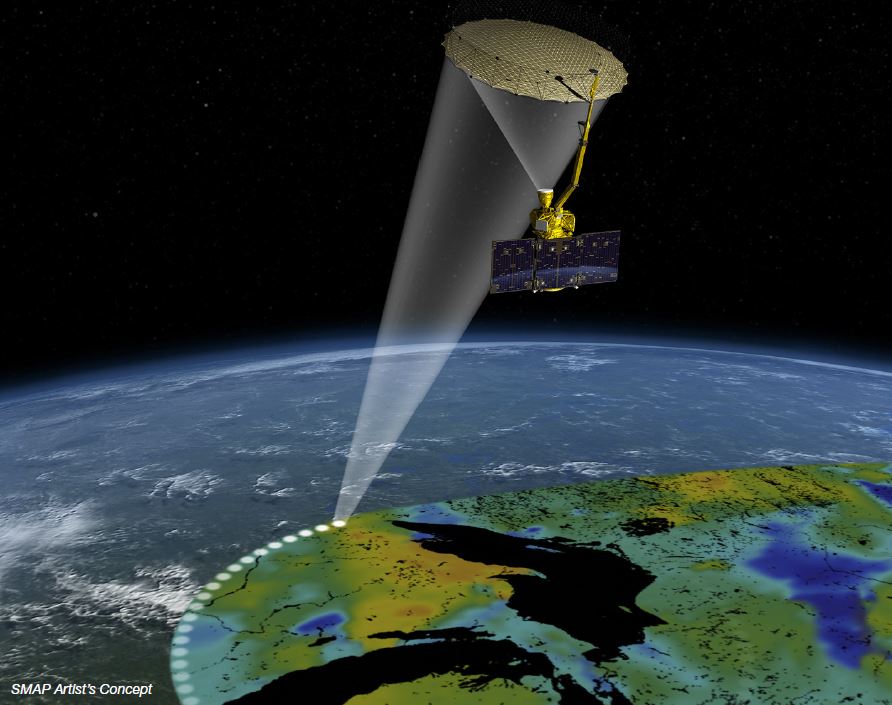
SMAP Update: A mission to manage water globally
The satellite mission to collect global data of surface soil moisture can help weather forecasting around the world.
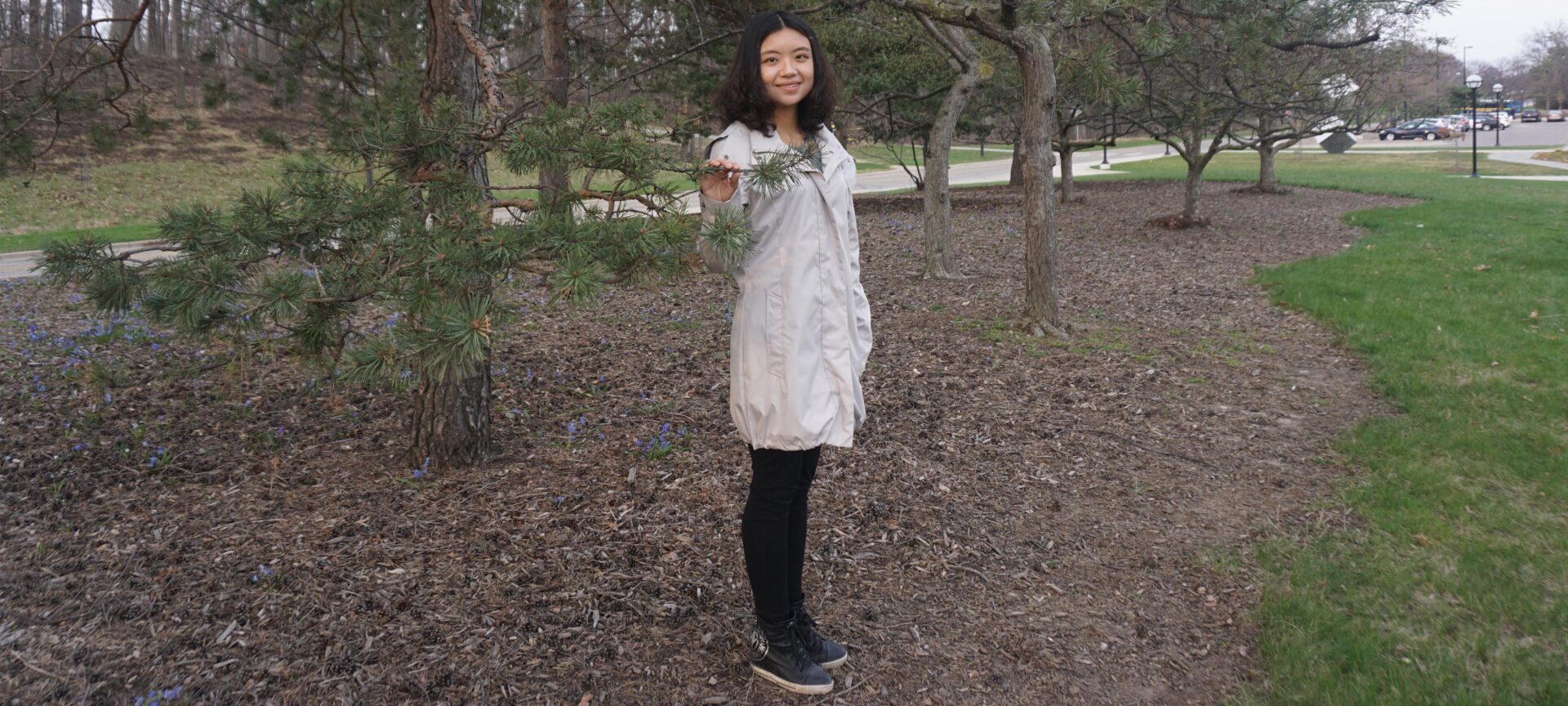
Huanting Huang and the mathematical shape of trees
An award-winning modeling method will help us better understand our natural environment

Deciphering GPS satellites to see inside hurricanes
To dial in on exact wind speeds, researchers needed to reverse engineering the signals from satellites.

Beyond Apollo 11: U-M ECE’s role in advancing space exploration
For the 50th anniversary of the Apollo 11 moon landing, U-M ECE takes a look back – and a look forward – to how our professors, students, and alums have made their mark on the field.

Anthony England, former NASA astronaut, professor, and dean, retires
England has dedicated more than two decades of his distinguished career helping students reach for the stars to understand more about Earth and other planets.

Behzad Yektakhah earns paper award for research in seeing through walls
Yektakhah’s system improves on the speed, portability, and accuracy of many commercial models

Time-varying metamaterials for next generation communication, sensing, and defense systems
With $7.5M MURI grant, Professor Anthony Grbic is developing metamaterials for a new generation of integrated electromagnetic and photonic systems.

Mingyan Liu: Confessions of a pseudo data scientist
Liu’s most recent research involves online learning, modeling of large-scale internet measurement data, and incentive mechanisms for security games.

$1.6M toward artificial intelligence for data science
DARPA is trying to build a system that can turn large data sets into models that can make predictions, and U-M is in on the project.

Mingyan Liu, 2018 Distinguished University Innovator, talks about her company and data science commercialization
Mingyan Liu, recipient of the 2018 Distinguished Innovator of the Year award, gave a talk about her startup company and participated on a panel discussing data science commercialiation.

Machine Learning and Systems: A conversation with 2020 Field Award winners Al Hero and Anders Lindquist
Hero and Lindquist took a few minutes to talk about the impact of machine learning on Signal Processing and Control Systems, and what they plan to do about it

Hun-Seok Kim receives CAREER Award to facilitate Internet of Things connectivity
Kim takes an interdisciplinary approach to tackle challenges in heterogeneous classes of energy-efficient and versatile communication systems.

Qing Qu receives CAREER award to explore the foundations of machine learning and data science
His research develops computational methods for learning succinct representations from high-dimensional data.

Designing Synthetic Human Gut Microbiome with AI
Prof. Al Hero was interviewed and gave a presentation about his research using machine learning to improve our understanding of the human gut
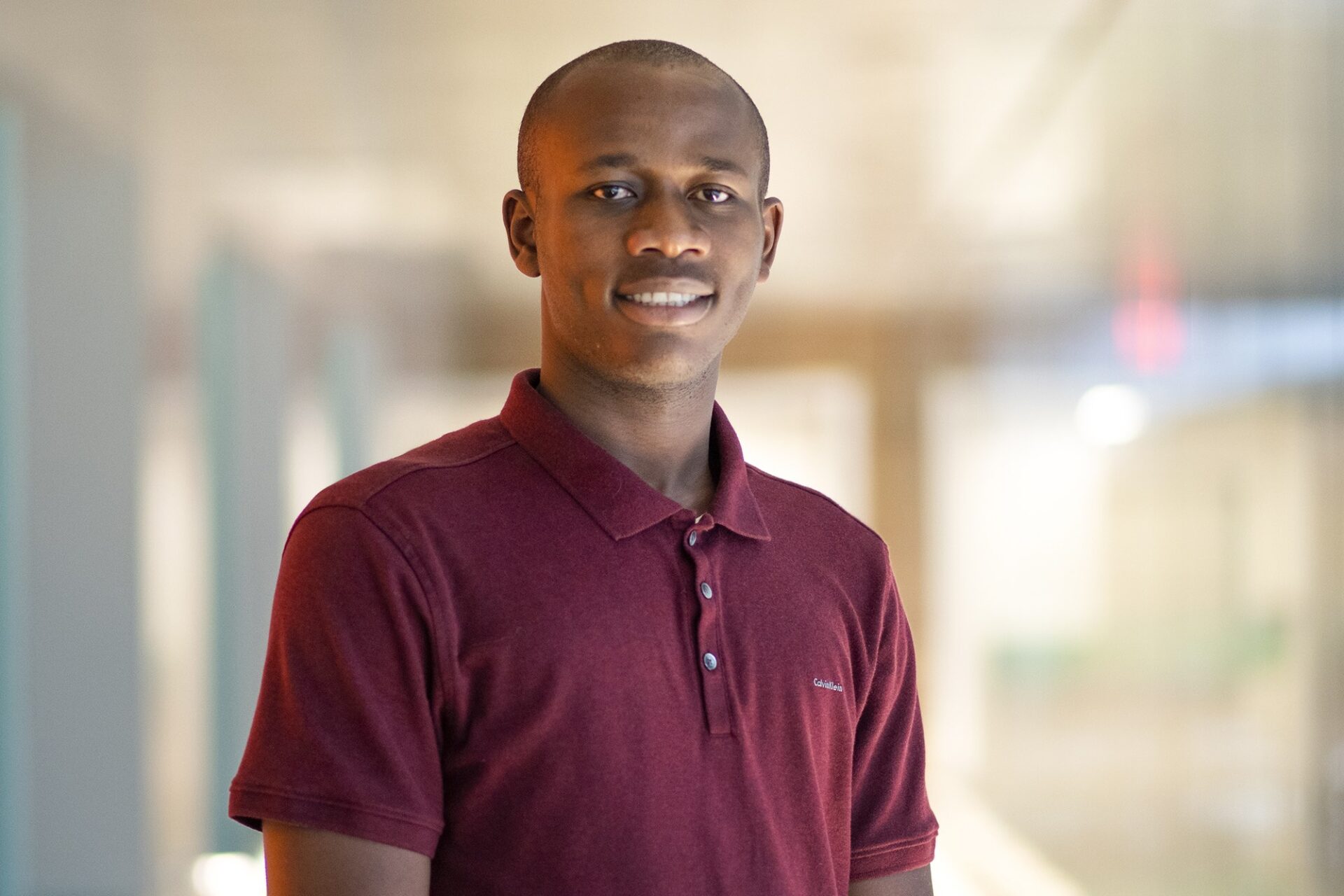
Demba Komma awarded Microsoft Research Ada Lovelace Fellowship for research on IoT localization technologies
Komma, a PhD student, is working to develop robust low powered localization technology for Artificial Intelligence enabled Internet of Things in locations where GPS is limited or blocked.

Prof. Pei Zhang solemnly swears that he’s up to some good
In a project he calls the “Marauder’s Map,” Prof. Zhang uses machine learning-based data models, physics models, and heuristic models to turn physical structures into sensing devices.

Snails carrying the world’s smallest computer help solve mass extinction survivor mystery
The study yields new insights into the survival of a native snail important to Tahitian culture and ecology and to biologists studying evolution, while proving the viability of similar studies of very small animals including insects
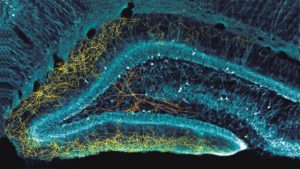
New understanding of neurons in the hippocampus: they’re all the same
A longstanding collaboration between engineers and neuroscientists leads to new insights into how neurons work in the hippocampus.
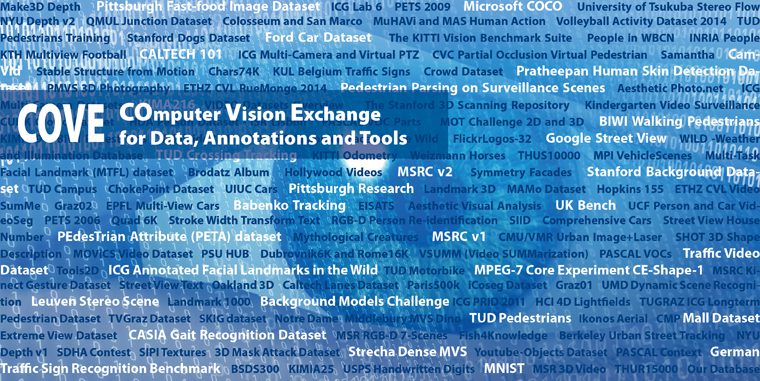
COVE: a tool for advancing progress in computer vision
Centralizing available data in the intelligent systems community through a COmputer Vision Exchange for Data, Annotations and Tools, called COVE.
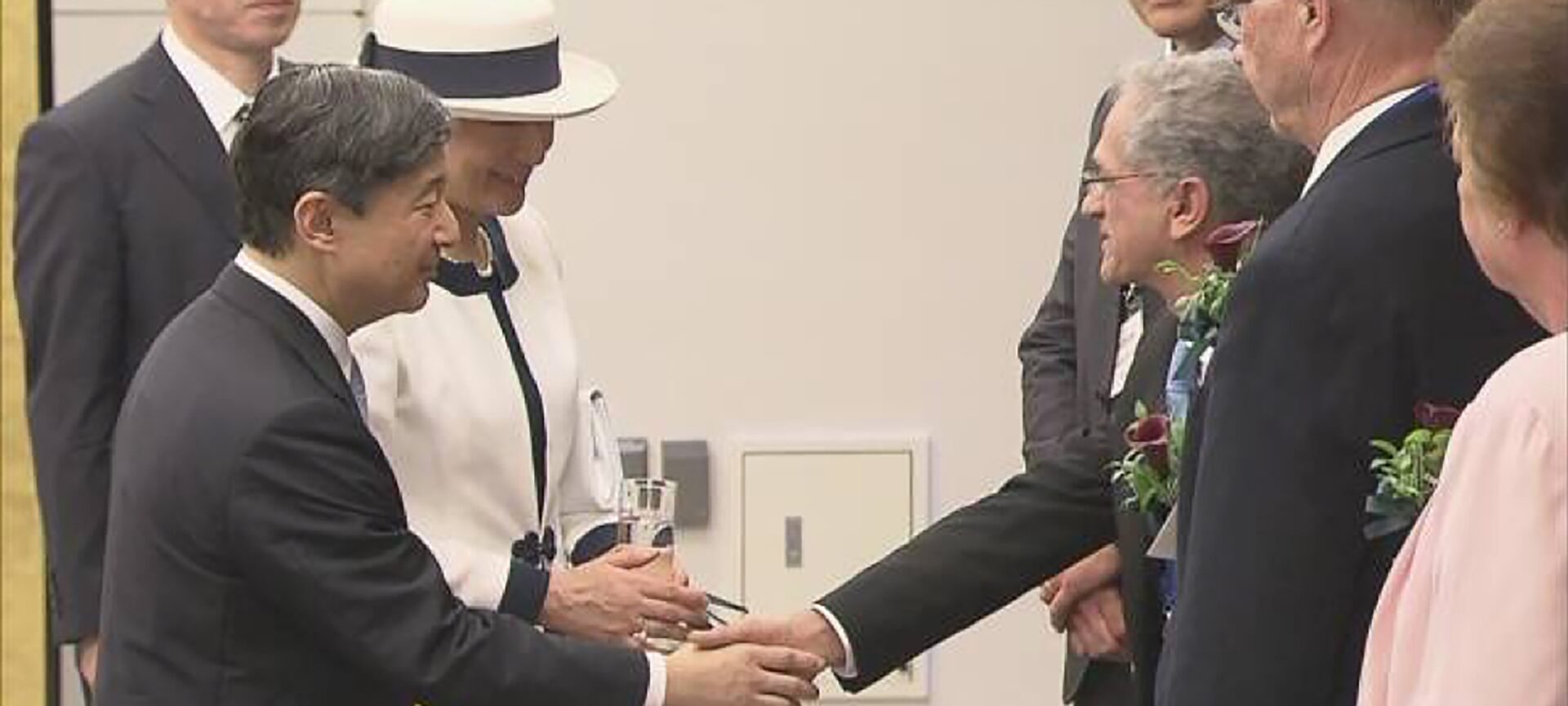
Prof. Kamal Sarabandi welcomes Emperor and Empress of Japan at IGARSS 2019
Predicting future disasters is an important goal of those participating in the IEEE Geoscience and Remote Sensing Symposium

Leung Tsang elected to the National Academy of Engineering
A professor of electrical engineering and computer science is awarded one of engineering’s top honors.

Tianlin Wang recognized with Towner Prize and Distinguished Leadership Award
The College of Engineering honors ECE PhD candidate Tianlin Wang for his excellent research in remote sensing as well as his leadership and service to the community.
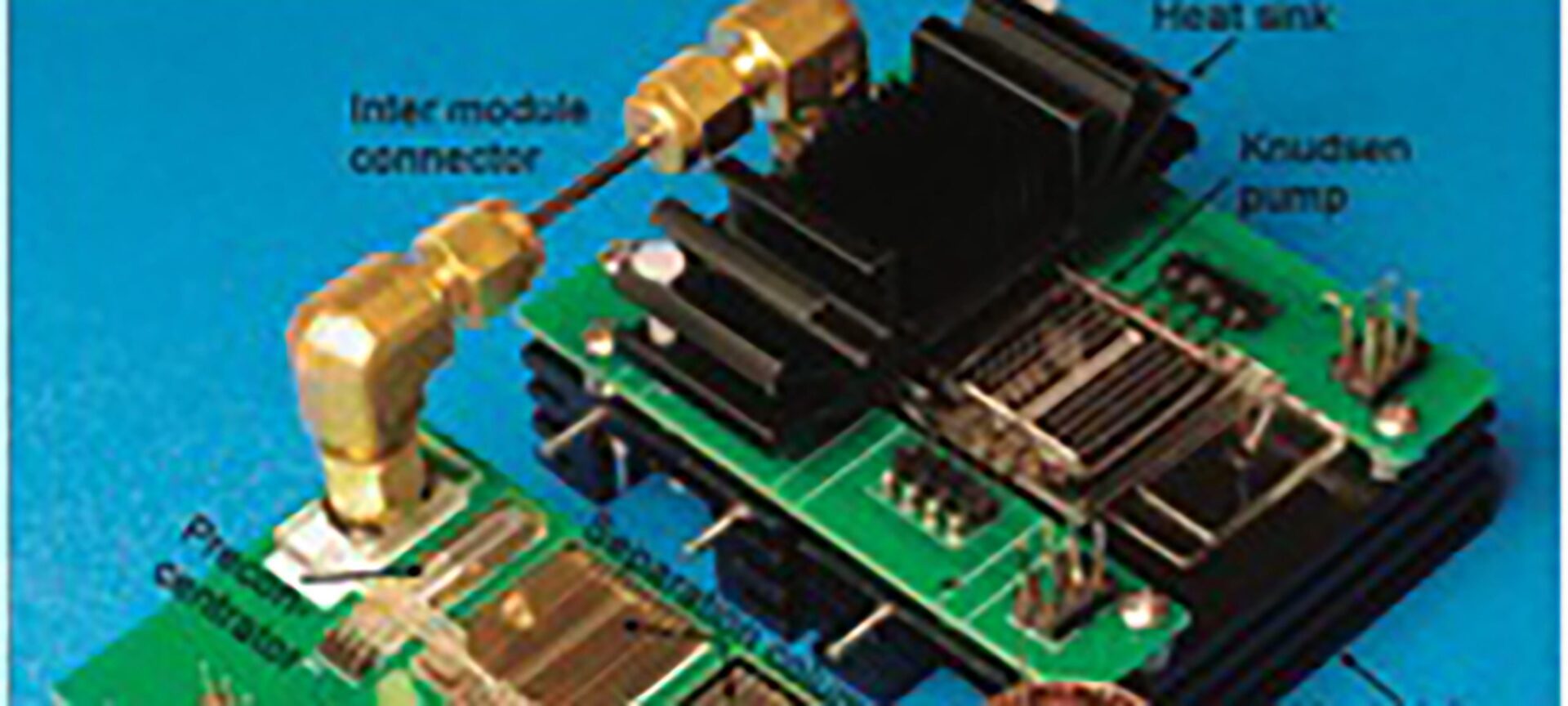
Detecting environmental pollutants with a smaller, portable, fully electric gas chromatograph
Prof. Yogesh Gianchandani and Dr. Yutao Qin received an “Outstanding Paper Award” for their fully electronic micro gas chromatography system.

Tracking Monarch Butterfly Migration with the World’s Smallest Computer
In a project funded by National Geographic, ECE researchers are teaming up with the department of Ecology and Evolutionary Biology to advance our understanding of monarch butterfly migration with the most ambitious iteration of the Michigan Micro Mote yet.

Kaleo Roberts receives scholarship from the American Indian Science and Engineering Society
Roberts works to improve remote sensing of soil moisture, which is important for environmental conservation, natural resource management, and agriculture.

Using remote sensing to track microplastics in the ocean
Electrical Engineering undergrad Madeline Evans is a key researcher on a project that uses NASA’s Cyclone Global Navigation Satellite System to monitor microplastic pollution that harms marine ecosystems.
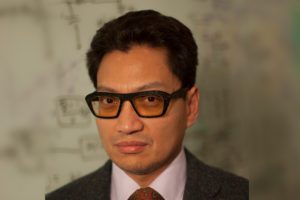
Al-Thaddeus Avestruz receives CAREER Award to advance sustainable energy storage
Using retired electric vehicle batteries, the project plans to enable widespread and equitable access to sustainable power and energy through sustainable energy storage.
$7.75M for mapping circuits in the brain
A new NSF Tech Hub will put tools to rapidly advance our understanding of the brain into the hands of neuroscientists.
The post $7.75M for mapping circuits in the brain appeared first on Michigan Engineering News.

New $32M center reimagines how computers are designed
‘You shouldn’t need a Ph.D. to design new computing systems.’

An even smaller world’s smallest ‘computer’
The latest from IBM and now the University of Michigan is redefining what counts as a computer at the microscale.
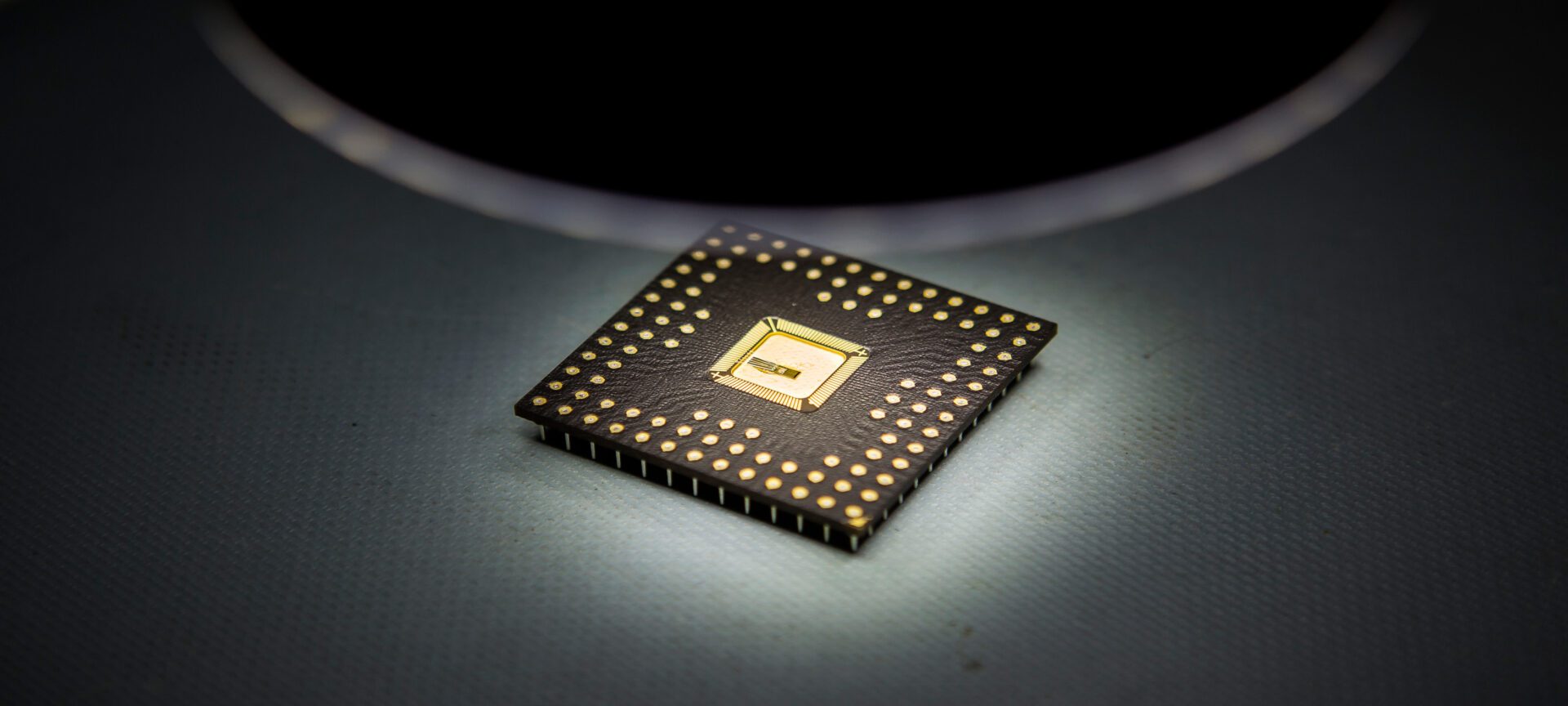
Beyond Moore’s law: $16.7M for advanced computing projects
DARPA’s initiative to reinvigorate the microelectronics industry draws deeply on Michigan Engineering expertise.
How Let’s Encrypt doubled the percentage of secure websites in four years
A Q&A with J. Alex Halderman, who co-founded the nonprofit organization.
The post How Let’s Encrypt doubled the percentage of secure websites in four years appeared first on Michigan Engineering News.
$1.8M DARPA project aims to protect cars, trucks and spacecraft from hackers
Ironpatch could head off growing danger of security vulnerabilities in vehicle systems.
The post $1.8M DARPA project aims to protect cars, trucks and spacecraft from hackers appeared first on Michigan Engineering News.
A breakthrough for large scale computing
New software finally makes ‘memory disaggregation’ practical.
The post A breakthrough for large scale computing appeared first on Michigan Engineering News.

Big data, small footprint
How changing the rules of computing could lighten Big Data’s impact on the internet.
Quantum tech: Semiconductor “flipped” to insulator above room temp
Discovery could pave the way to high speed, low-energy quantum computing.
The post Quantum tech: Semiconductor “flipped” to insulator above room temp appeared first on Michigan Engineering News.
Election lessons from Michigan
Election security expert J. Alex Halderman dissects Antrim County’s election debacle to help future contests go more smoothly.
The post Election lessons from Michigan appeared first on Michigan Engineering News.
Three members of ECE will represent U-M at the 2021 Rising Stars in EECS Workshop
PhD students Sijia Geng, Bahareh Hadidian, and Nasimeh Heydaribeni will participate in the intensive workshop that brings together outstanding women and gender minorities interested in pursuing academic careers in EECS.
The post Three members of ECE will represent U-M at the 2021 Rising Stars in EECS Workshop appeared first on Michigan Engineering News.
Batteryless next-generation cellular devices could empower a more sustainable future
PhD student Trevor Odelberg is looking to enable long range, highly reliable, and low-power cellular IoT devices that one day can run entirely on harvested energy, reducing battery waste and empowering devices to last for decades.
The post Batteryless next-generation cellular devices could empower a more sustainable future appeared first on Michigan Engineering News.
$1.8M to develop room temperature, controllable quantum nanomaterials
The project could pave the way for compact quantum computing and communications as well as efficient UV lamps for sterilization and air purification.
The post $1.8M to develop room temperature, controllable quantum nanomaterials appeared first on Michigan Engineering News.
Battery-free sensor startup takes aim at industrial efficiency
Part of the team that brought us the world’s smallest computer in 2015 brings the future of computing technology into the present.
The post Battery-free sensor startup takes aim at industrial efficiency appeared first on Michigan Engineering News.

Computer vision: Finding the best teaching frame in a video for fake video fightback
The frame in which a human marks out the boundaries of an object makes a huge difference in how well AI software can identify that object through the rest of the video.
Autonomous vehicles can be fooled to ‘see’ nonexistent obstacles
Vehicles that perceive obstacles that aren’t really there could cause traffic accidents.
The post Autonomous vehicles can be fooled to ‘see’ nonexistent obstacles appeared first on Michigan Engineering News.
$5M to enable remote, next-generation autonomous vehicle testing at Mcity
‘Mcity 2.0’ will give researchers, many without testing resources, remote access to the Mcity Test Facility—creating a more equitable playing field in mobility.
The post $5M to enable remote, next-generation autonomous vehicle testing at Mcity appeared first on Michigan Engineering News.
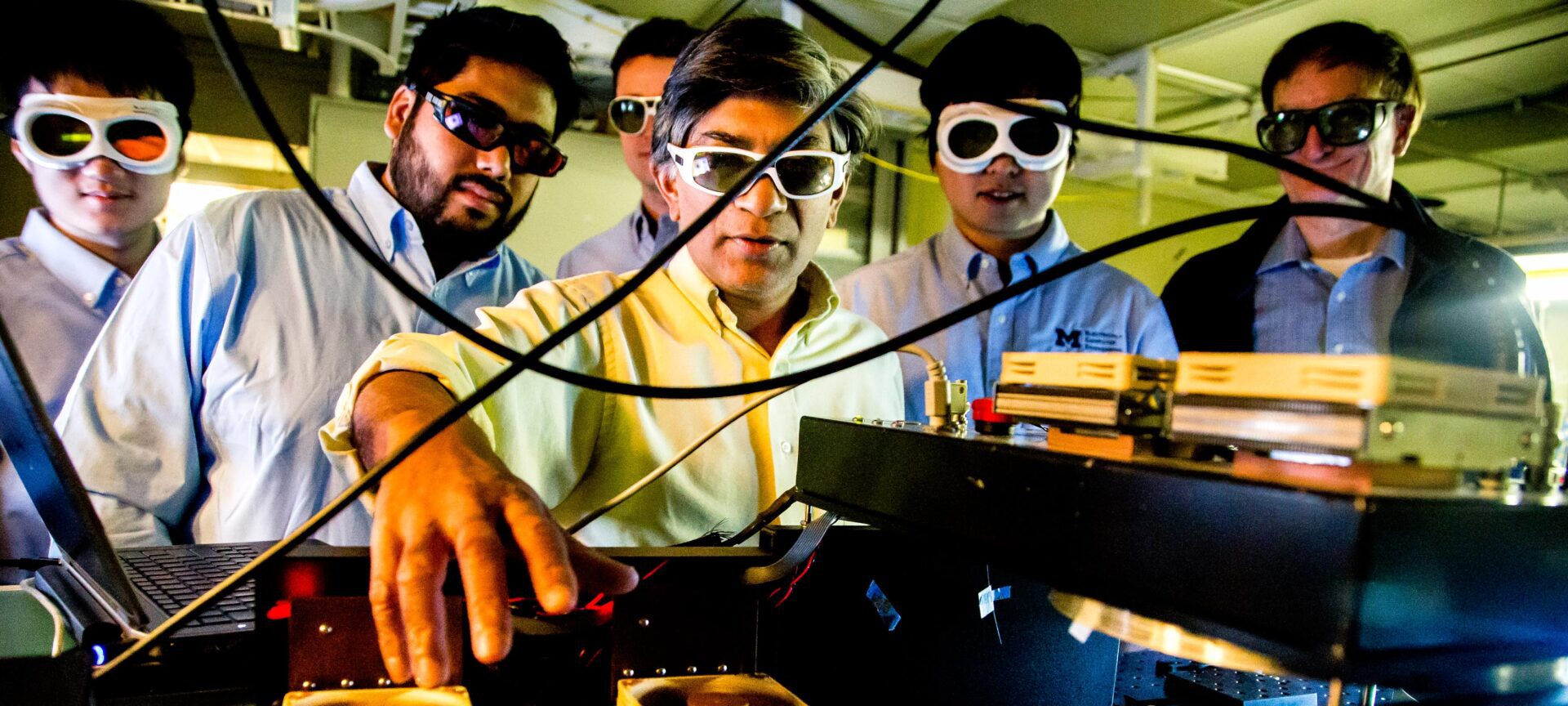
A shoe-box-sized chemical detector
Powered by a broadband infrared laser, the device can zero in on the ‘spectral fingerprint region’.
Has the Olympics changed how it measures false-starts in track?
A Q&A with a biomechanics expert who has researched reaction times
The post Has the Olympics changed how it measures false-starts in track? appeared first on Michigan Engineering News.
A ‘decathlon’ for antibiotics puts them through more realistic testing
Surprise findings could upend the current drug discovery approach for treating one of the most dangerous hospital-borne infections.
The post A ‘decathlon’ for antibiotics puts them through more realistic testing appeared first on Michigan Engineering News.
‘Doomsday Glacier’ may be more stable than initially feared
Study sheds light on the future of the massive Thwaites Glacier.
The post ‘Doomsday Glacier’ may be more stable than initially feared appeared first on Michigan Engineering News.
Making wind power more predictable: A Q&A with Eunshin Byon
Predictive modeling could help power companies get more consistent output from renewables.
The post Making wind power more predictable: A Q&A with Eunshin Byon appeared first on Michigan Engineering News.
Keeping the world connected, without sacrificing privacy
Engineering assistant professor Raed Al Kontar outlines a new paradigm for connected devices.
The post Keeping the world connected, without sacrificing privacy appeared first on Michigan Engineering News.
In the news: Michigan Engineering experts May 17-21
Highlights include NPR, Popular Science and The Conversation.
The post In the news: Michigan Engineering experts May 17-21 appeared first on Michigan Engineering News.
Mining soundwaves: Researchers unlock new data in sonar signals
“Acoustic fields are unexpectedly richer in information than is typically thought.”
The post Mining soundwaves: Researchers unlock new data in sonar signals appeared first on Michigan Engineering News.

Catching nuclear smugglers: fast algorithm could enable cost-effective detectors at borders
The algorithm can pick out weak signals from nuclear weapons materials, hidden in ordinary radiation sources like fertilizer.
Opinion: Future aerospace enterprises will demand more advanced modeling and simulation
U-M Aerospace Engineering Professor Venkat Raman advocates for more versatile and powerful modeling tools to meet computational demands of next-generation aircraft design.
The post Opinion: Future aerospace enterprises will demand more advanced modeling and simulation appeared first on Michigan Engineering News.
Avian secret: The key to agile bird flight is switching quickly between stable and unstable gliding
The finding could have implications for future agile autonomous aerial vehicles.
The post Avian secret: The key to agile bird flight is switching quickly between stable and unstable gliding appeared first on Michigan Engineering News.
“Learning database” speeds queries from hours to seconds
Verdict can make databases deliver answers more than 200 times faster while maintaining 99 percent accuracy.
The post “Learning database” speeds queries from hours to seconds appeared first on Michigan Engineering News.
Chat tool simplifies tricky online privacy policies
Register for an account on just about any website or download an app to your smartphone and you likely will encounter that pesky, “I certify that I’ve read and understand the privacy policy,” check box. “Typically drafted by lawyers, these documents tell you, ‘This the information we’re collecting, this is how we’re processing it, this […]
The post Chat tool simplifies tricky online privacy policies appeared first on Michigan Engineering News.
Fake news detector algorithm works better than a human
System sniffs out fakes up to 76 percent of the time.
The post Fake news detector algorithm works better than a human appeared first on Michigan Engineering News.
A new company, Omniscent, is sniffing out dangerous levels of toxic chemicals in the air
Subscription service offers real-time monitoring
The post A new company, Omniscent, is sniffing out dangerous levels of toxic chemicals in the air appeared first on Michigan Engineering News.
‘Air traffic control’ for driverless cars could speed up deployment
Human-generated responses could remotely assist autonomous vehicles decision’s during times of uncertainty.
The post ‘Air traffic control’ for driverless cars could speed up deployment appeared first on Michigan Engineering News.
Advancing AI for Video: Startup launches powerful video processing platform
Voxel51 uses AI processing to identify and track objects and activities through video clips.
The post Advancing AI for Video: Startup launches powerful video processing platform appeared first on Michigan Engineering News.
First programmable memristor computer aims to bring AI processing down from the cloud
Circuit elements that store information in their electrical resistances enable a brain-like form of computing, storing and processing information in the same place.
The post First programmable memristor computer aims to bring AI processing down from the cloud appeared first on Michigan Engineering News.
How Russia’s online censorship could jeopardize internet freedom worldwide
The nation is using inexpensive commodity equipment to block 170K domains on more than 1K privately-owned ISPs.
The post How Russia’s online censorship could jeopardize internet freedom worldwide appeared first on Michigan Engineering News.
$7.5M MURI to make dynamic AI smarter and safer
Researchers from four U.S. institutions aim to pull the best from control theory and machine learning to build safer mobile, intelligent systems.
The post $7.5M MURI to make dynamic AI smarter and safer appeared first on Michigan Engineering News.
$20M NSF AI-EDGE Institute aims to transform 5G and beyond networks
U-M is a core member of a new NSF-led Institute that is a collaboration between 11 institutions, three government research labs, and four global companies.
The post $20M NSF AI-EDGE Institute aims to transform 5G and beyond networks appeared first on Michigan Engineering News.
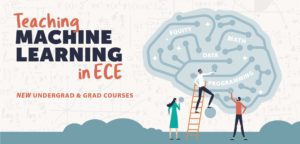
Teaching Machine Learning in ECE
With new courses at the UG and graduate level, ECE is delivering state-of-the-art instruction in machine learning for students in ECE, and across the University
Faster than COVID: a computer model that predicts the disease’s next move
Predictive model could help care providers stay safe, anticipate patient needs.
The post Faster than COVID: a computer model that predicts the disease’s next move appeared first on Michigan Engineering News.
Hunger and COVID: Fighting pandemic-related food insecurity in Detroit
Public policy and engineering team up to improve food access.
The post Hunger and COVID: Fighting pandemic-related food insecurity in Detroit appeared first on Michigan Engineering News.
How big data could optimize COVID-19 testing
Microsoft-supported project to coordinate site locations, supply distribution.
The post How big data could optimize COVID-19 testing appeared first on Michigan Engineering News.
Predicting how well a vaccine will work for you
A conventional approach to HIV vaccination does not induce immune responses in everyone equally, and a new computer model shows why.
The post Predicting how well a vaccine will work for you appeared first on Michigan Engineering News.
Michigan Engineering group creates model for layering COVID-19 defenses
The model can be used as a tool to inform decision-makers and individuals on relative risks and advantages associated with a layered defense.
The post Michigan Engineering group creates model for layering COVID-19 defenses appeared first on Michigan Engineering News.
Live public street cams are tracking social distancing
Virtually visit (what should be) desolate intersections around the world during COVID-19.
The post Live public street cams are tracking social distancing appeared first on Michigan Engineering News.
Individual finger control for advanced prostheses demonstrated in primates
An electrode array implanted in the brain predicts finger motions in near real time.
The post Individual finger control for advanced prostheses demonstrated in primates appeared first on Michigan Engineering News.
Calculating the best shapes for things to come
A new algorithm efficiently determines optimal shapes for structures.
The post Calculating the best shapes for things to come appeared first on Michigan Engineering News.
Latest two-legged walking robot arrives at Michigan
Built to handle falls, and with two extra motors in each leg, the new robot will help U-M roboticists take independent robotic walking to a whole new level.
The post Latest two-legged walking robot arrives at Michigan appeared first on Michigan Engineering News.
Teaching self-driving cars to predict pedestrian movement
Data gleaned from cameras and sensors increases predictive accuracy.
The post Teaching self-driving cars to predict pedestrian movement appeared first on Michigan Engineering News.
‘It’s like you have a hand again’
An ultra-precise mind-controlled prosthetic.
The post ‘It’s like you have a hand again’ appeared first on Michigan Engineering News.
Delivery robots help Ann Arbor restaurants weather COVID
U-M startup says robotic food deliveries have quadrupled.
The post Delivery robots help Ann Arbor restaurants weather COVID appeared first on Michigan Engineering News.
Space motor helps make robotic prosthetic leg more comfortable and extends battery life
Getting rid of some gears enabled a free-swinging knee, regenerative braking and brought the noise level down from vacuum cleaner to fridge.
The post Space motor helps make robotic prosthetic leg more comfortable and extends battery life appeared first on Michigan Engineering News.
U-Michigan, Ford open world-class robotics complex
The facility will accelerate the future of advanced and more equitable robotics and mobility.
The post U-Michigan, Ford open world-class robotics complex appeared first on Michigan Engineering News.
Helping robots learn what they can and can’t do in new situations
What should a robot do when it cannot trust the model it was trained on?
The post Helping robots learn what they can and can’t do in new situations appeared first on Michigan Engineering News.
$1M for open-source first-responder robots
An open-source perception and movement system, to be developed with NSF funding, could enable robots that partner with humans in fires and disaster areas.
The post $1M for open-source first-responder robots appeared first on Michigan Engineering News.
$1.7M to build everyday exoskeletons to assist with lifting, walking and climbing stairs
The modular exoskeleton system will help workers and the elderly, boosting ankle, knee and/or hip joints by mounting new motors to off-the-shelf orthotics.
The post $1.7M to build everyday exoskeletons to assist with lifting, walking and climbing stairs appeared first on Michigan Engineering News.
Open-source patient model tops industry standard
Tested without needing hospitals to share data, the method for developing the model could speed further improvements in medical prediction tools.
The post Open-source patient model tops industry standard appeared first on Michigan Engineering News.

Immune to hacks: Inoculating deep neural networks to thwart attacks
The adaptive immune system serves as a template for defending neural nets from confusion-sowing attacks
Emulating impossible “unipolar” laser pulses paves the way for processing quantum information
Quantum materials emit light as though it were only a positive pulse, rather than a positive-negative oscillation.
The post Emulating impossible “unipolar” laser pulses paves the way for processing quantum information appeared first on Michigan Engineering News.

Machine learning begins to understand the human gut
The new computer model accurately predicts the behavior of millions of microbial communities from hundreds of experiments, an advance toward precision medicine.
Open source platform enables research on privacy-preserving machine learning
Virtual assortment of user devices provides a realistic training environment for distributed machine learning, protects privacy by learning where data lives.
The post Open source platform enables research on privacy-preserving machine learning appeared first on Michigan Engineering News.
Walking and slithering aren’t as different as you think
New mathematical model links up slithering with some kinds of swimming and walking, and it could make programming many-legged robots easier.
The post Walking and slithering aren’t as different as you think appeared first on Michigan Engineering News.
Seeing electron movement at fastest speed ever could help unlock next-level quantum computing
New technique could enable processing speeds a million to a billion times faster than today’s computers and spur progress in many-body physics.
The post Seeing electron movement at fastest speed ever could help unlock next-level quantum computing appeared first on Michigan Engineering News.
 Michigan Engineering | University of Michigan
Michigan Engineering | University of Michigan 
